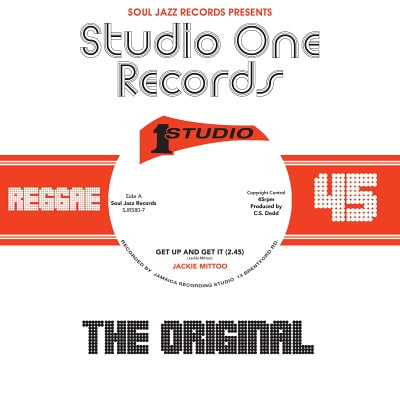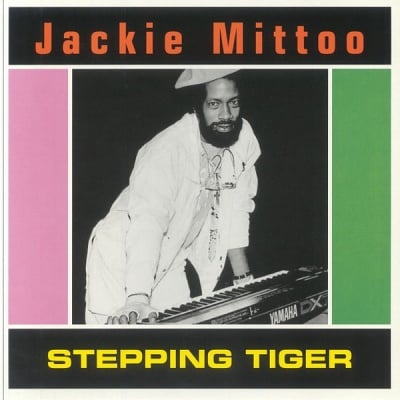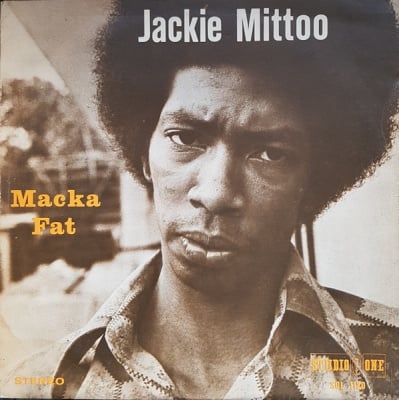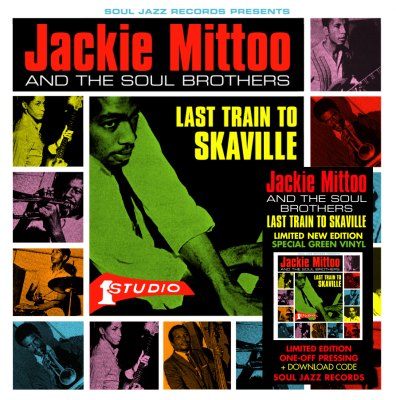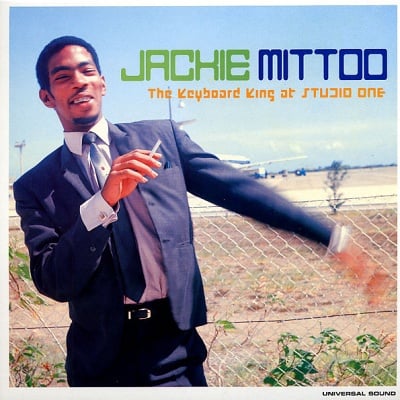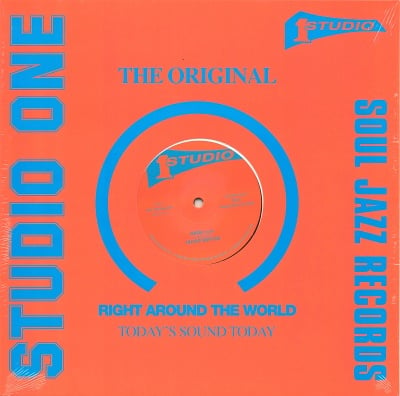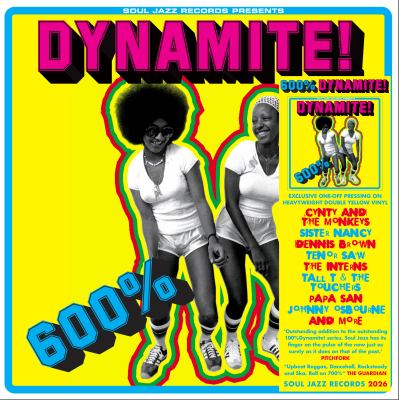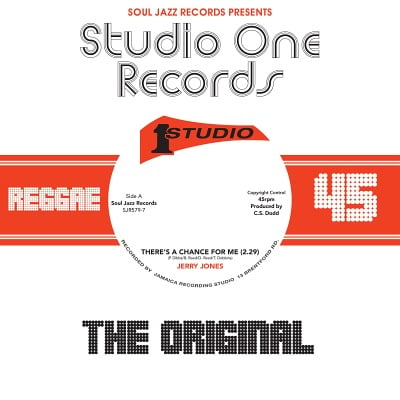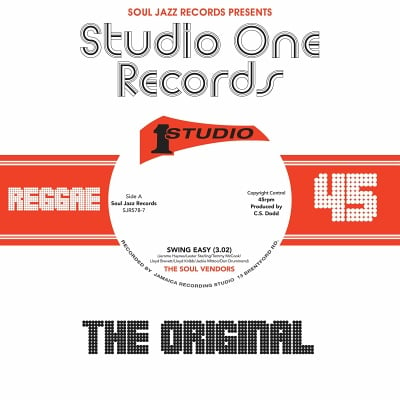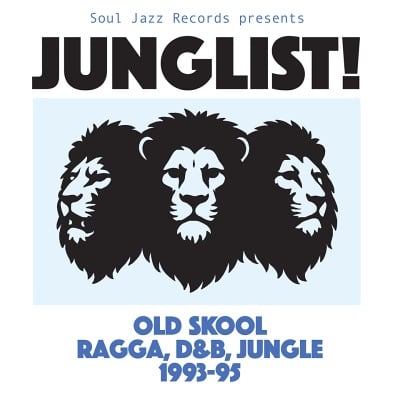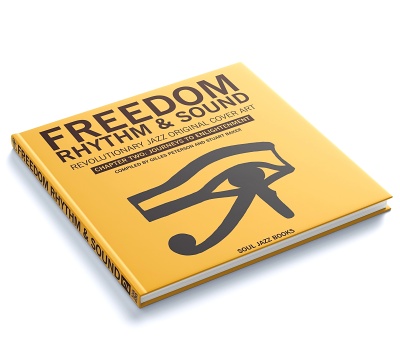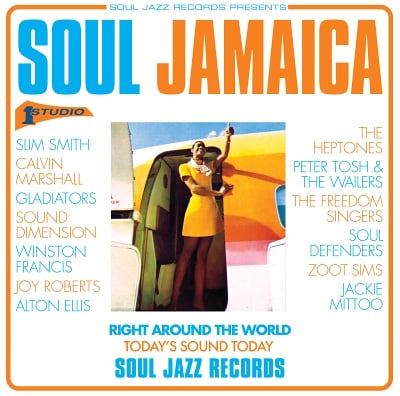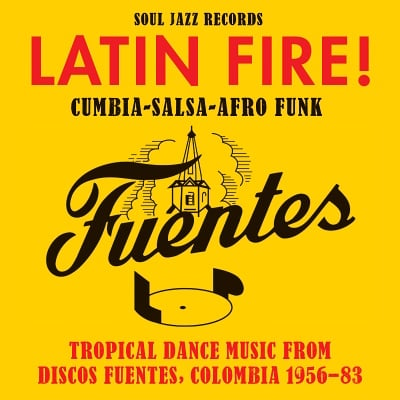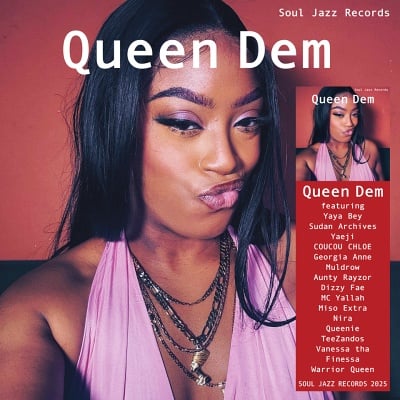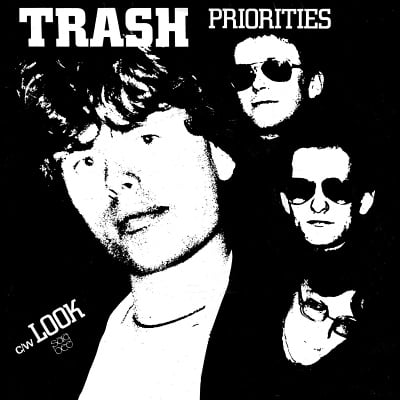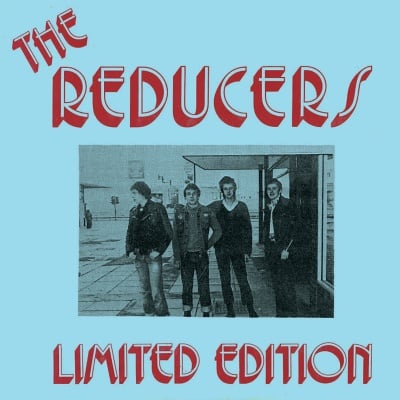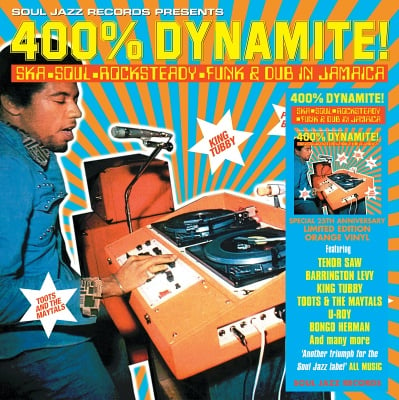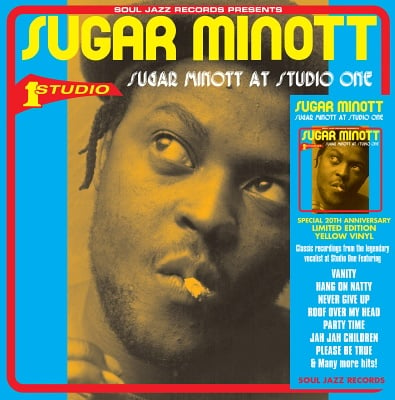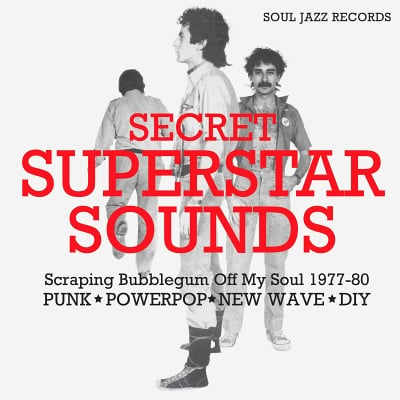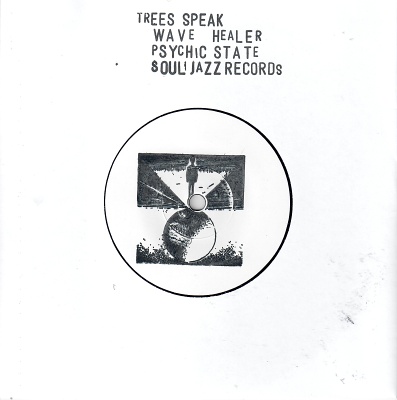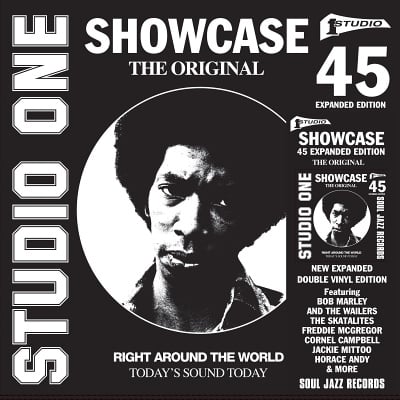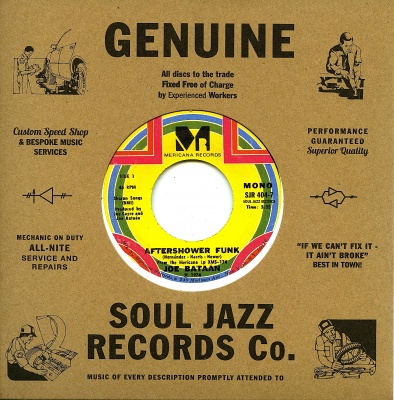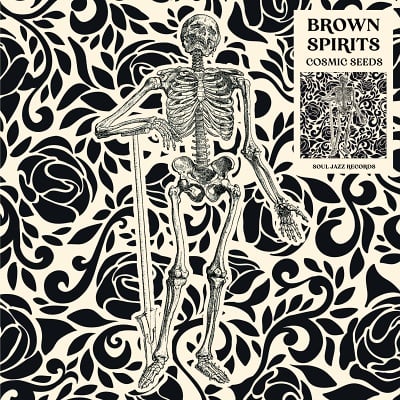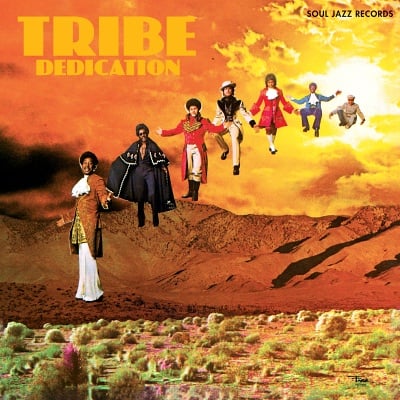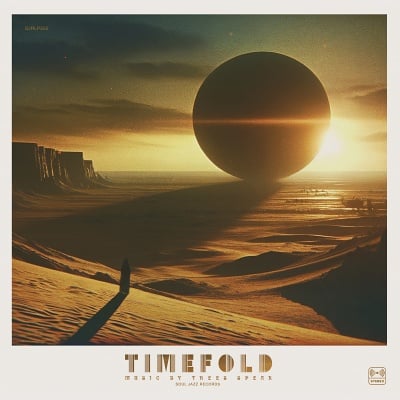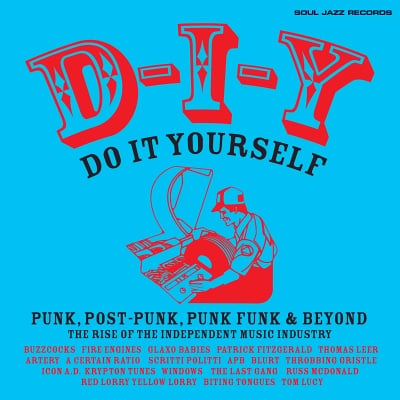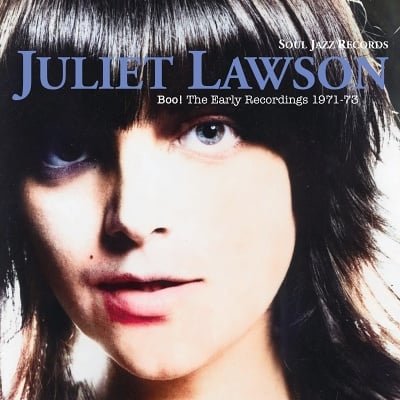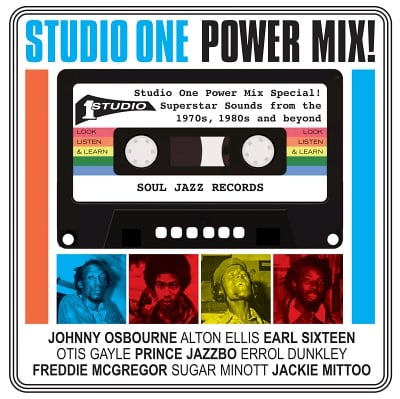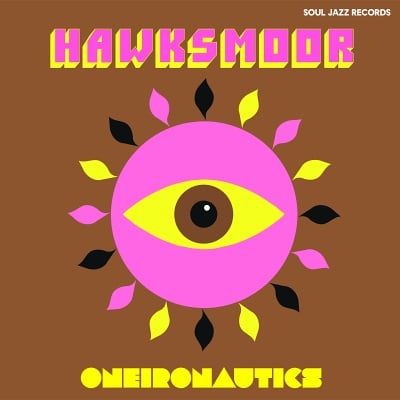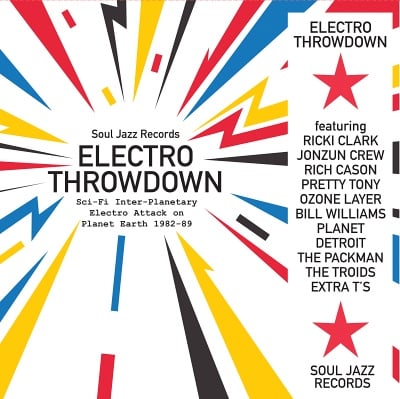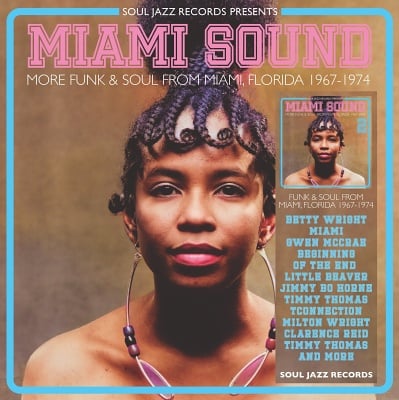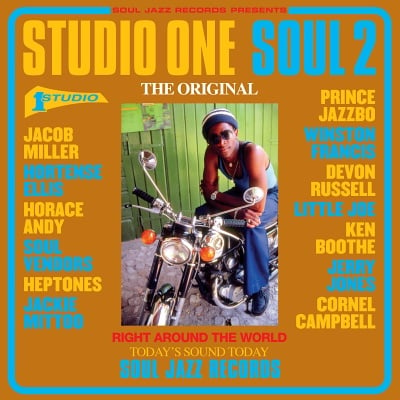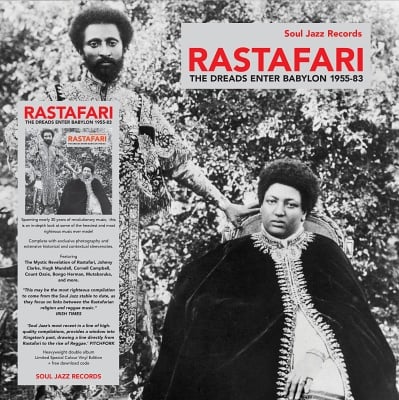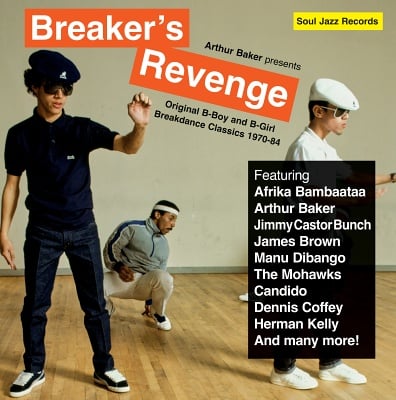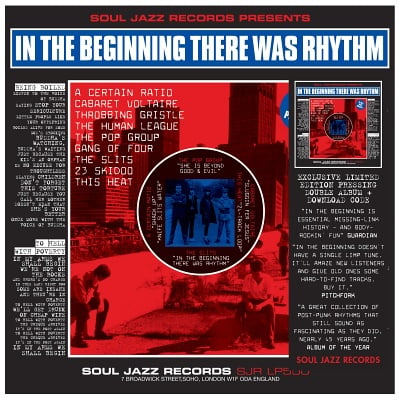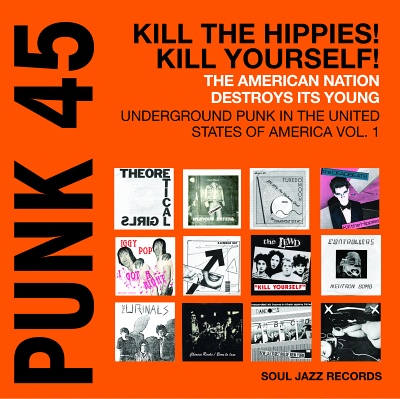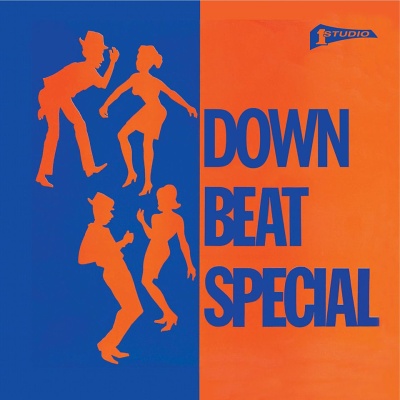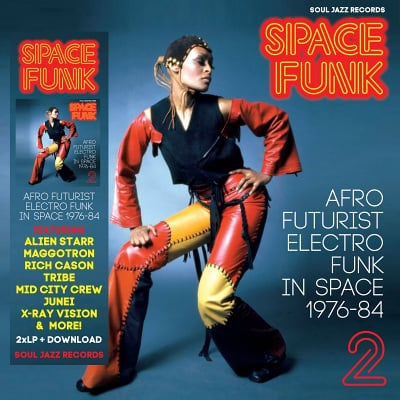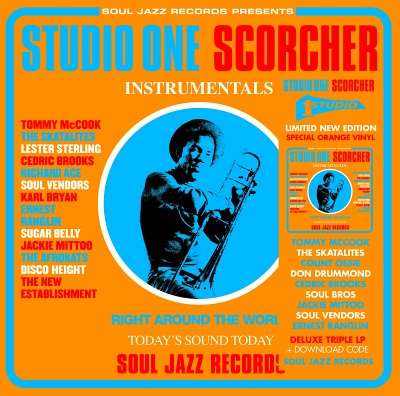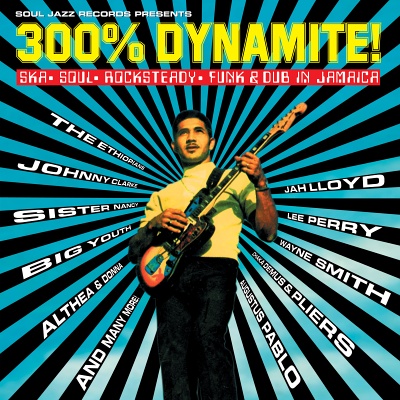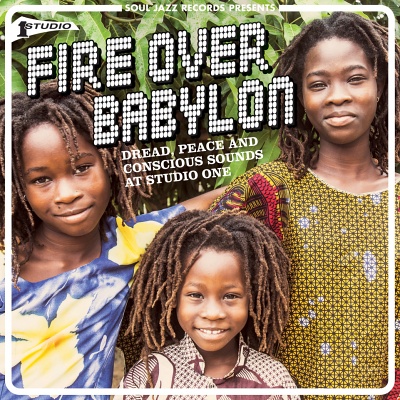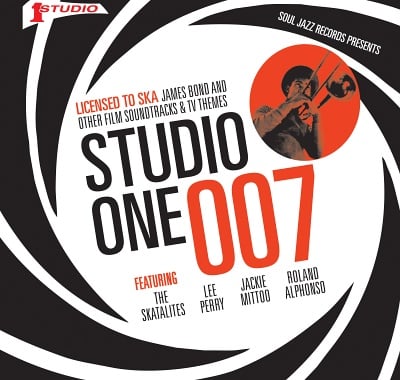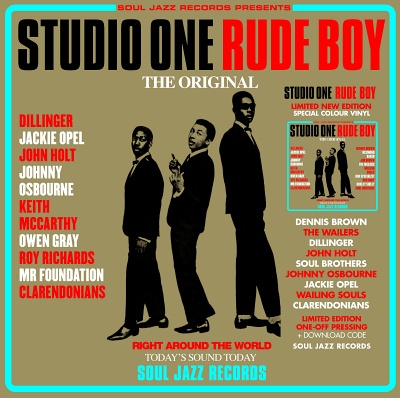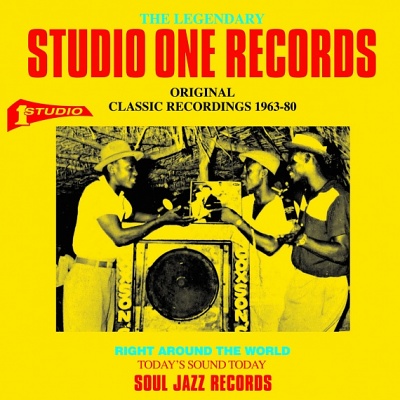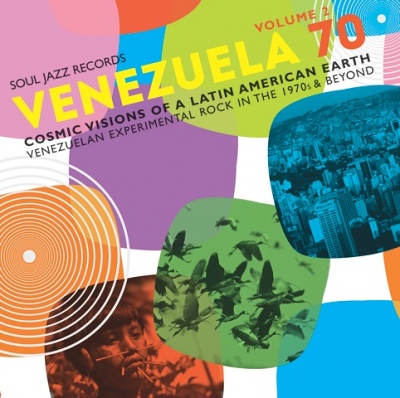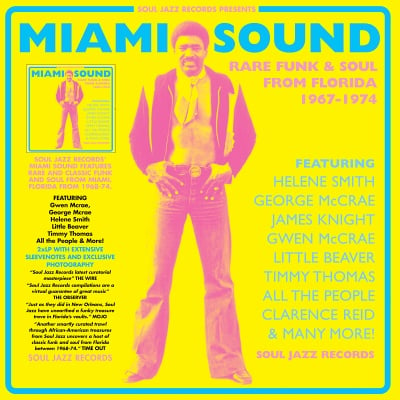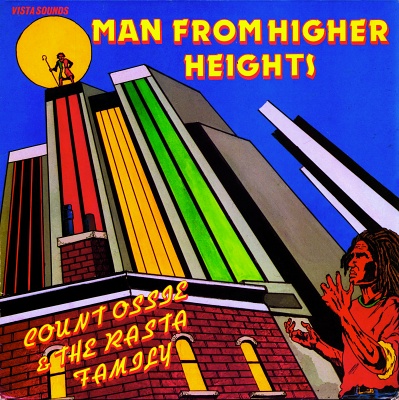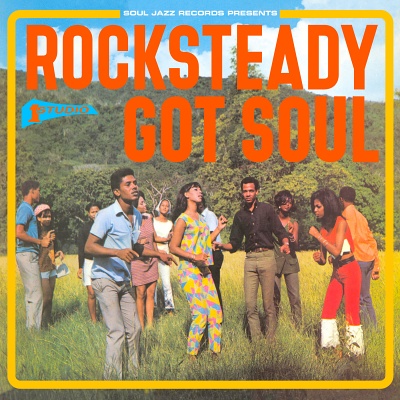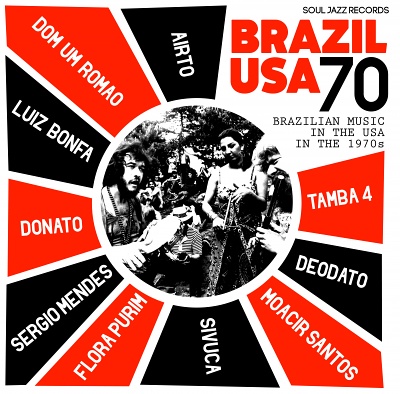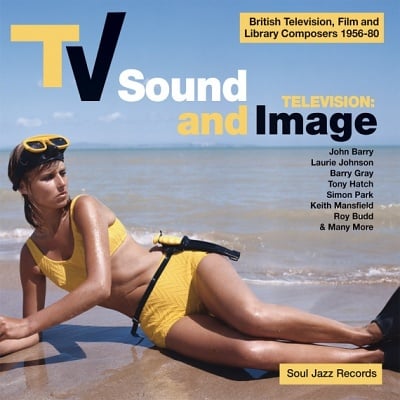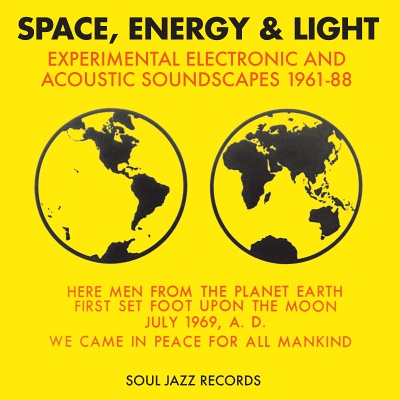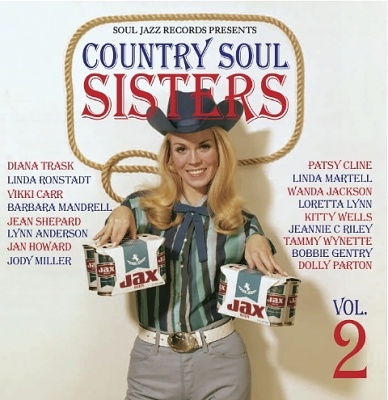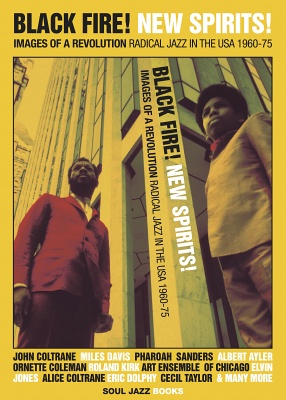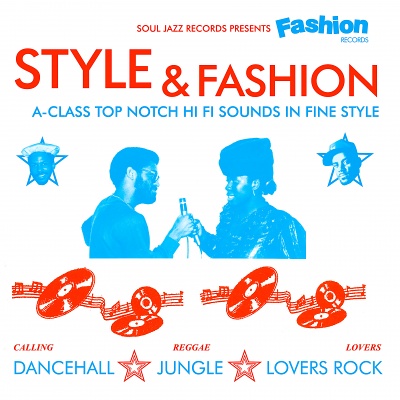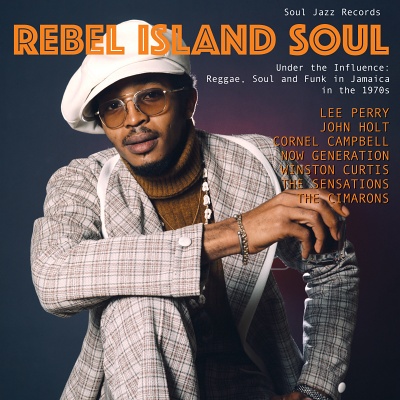
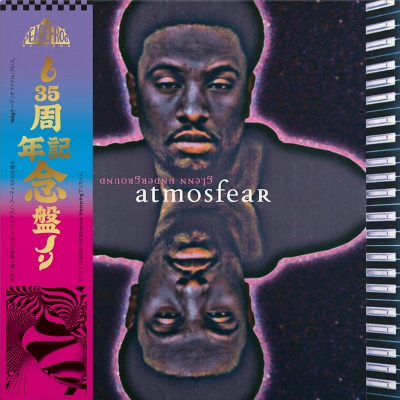
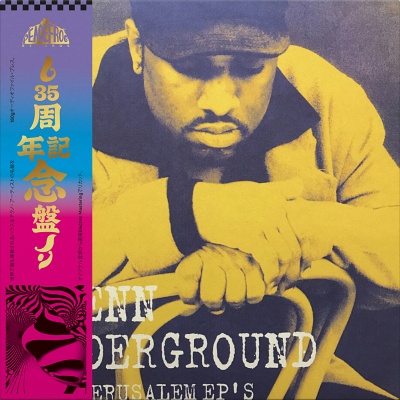
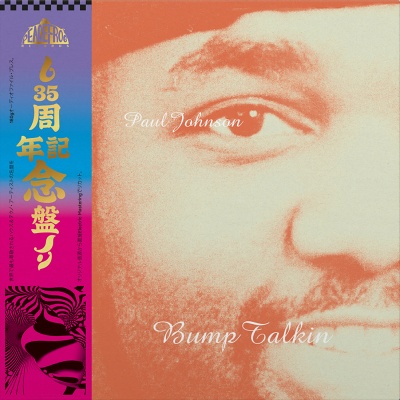
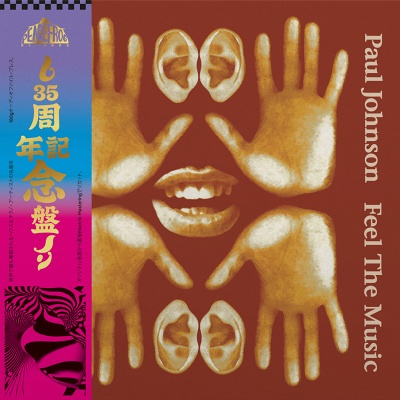
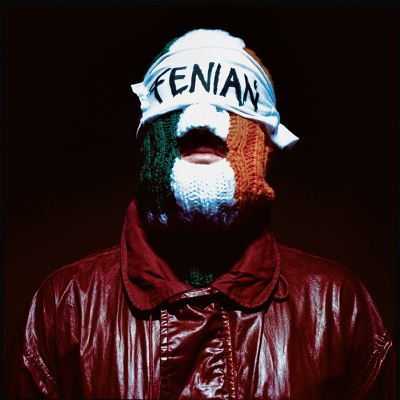

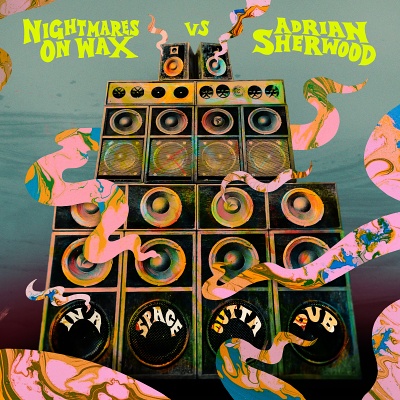
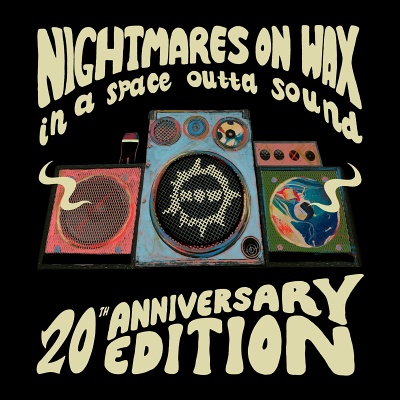

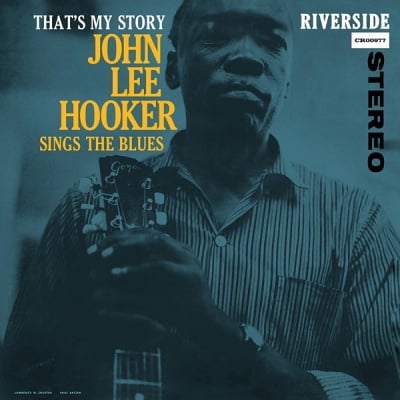


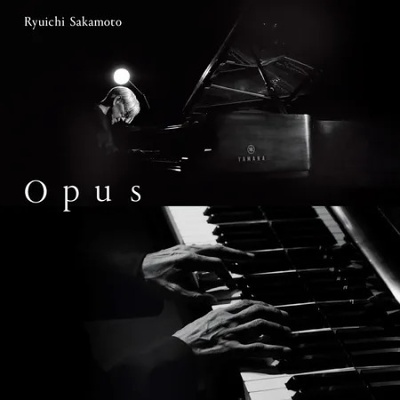

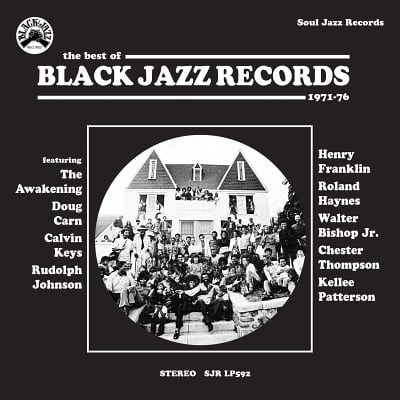
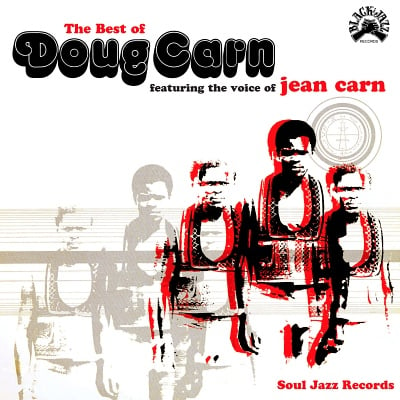

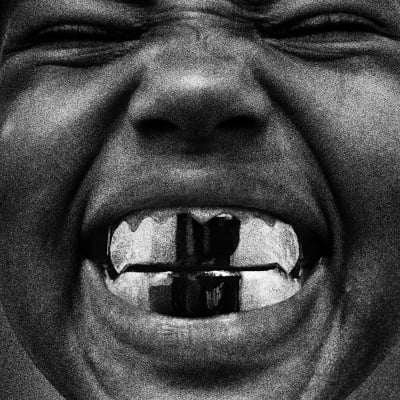
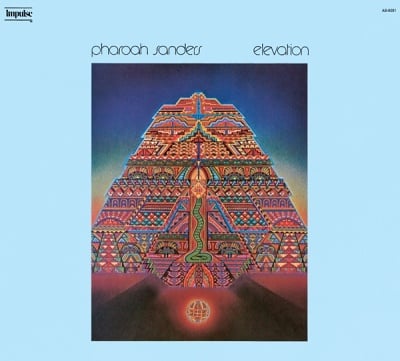


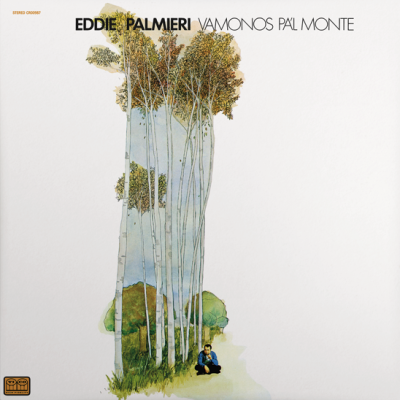
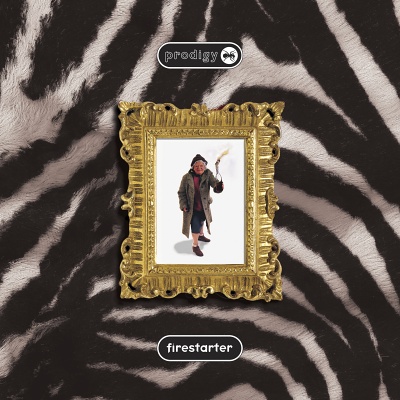
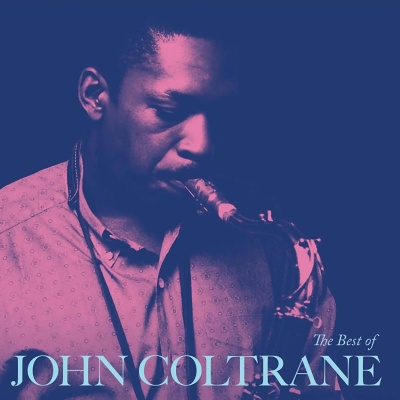
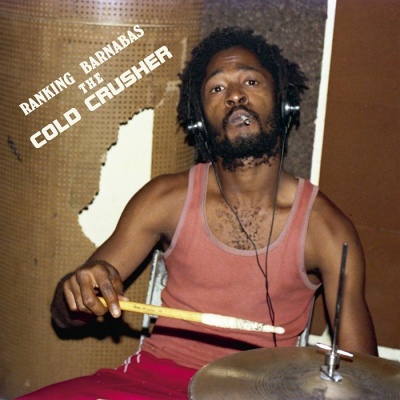

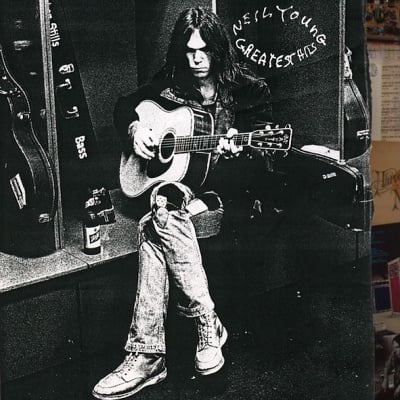

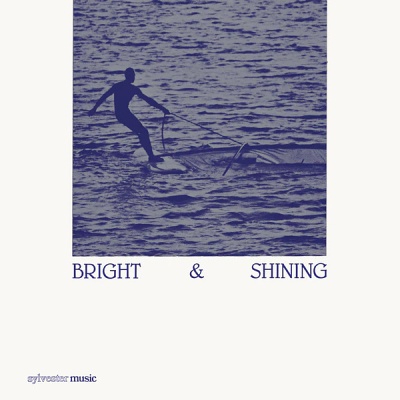
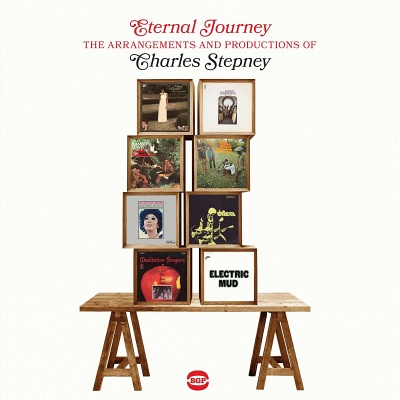

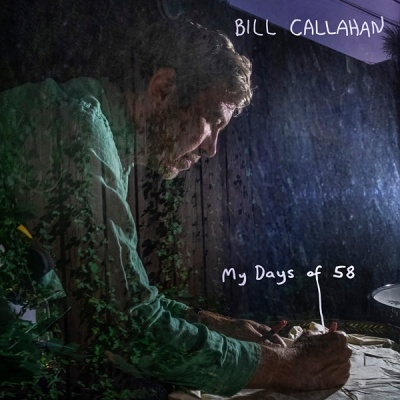

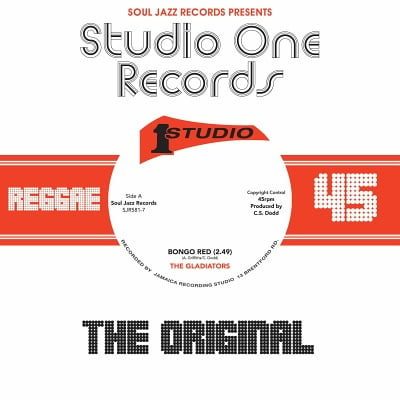
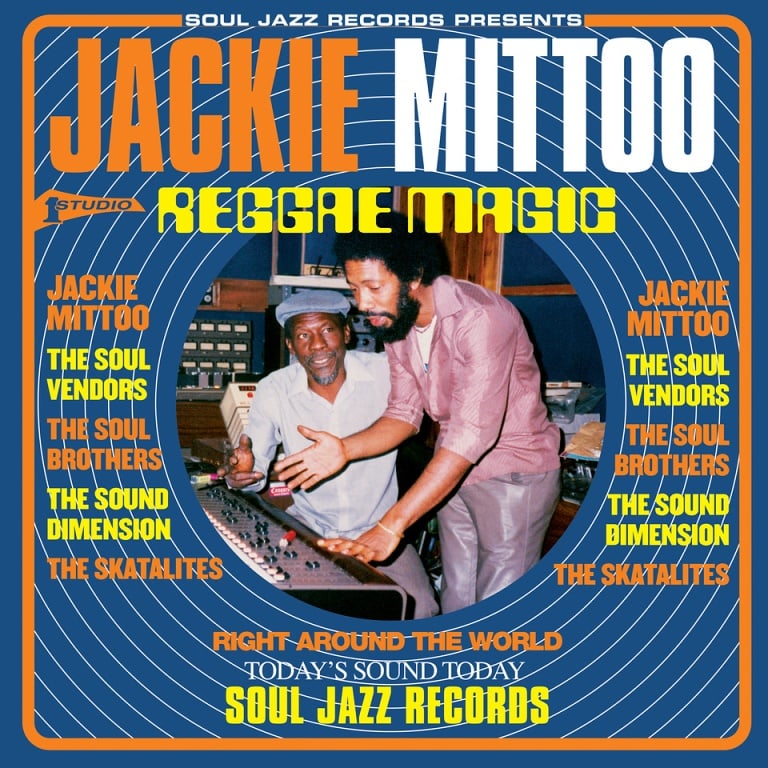
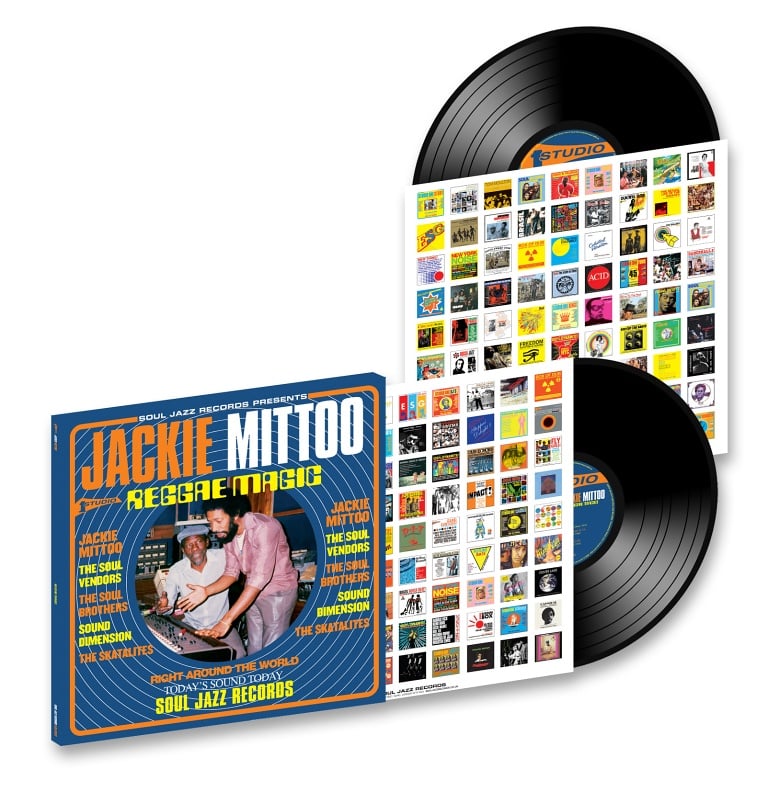
- 2xLP + Download Code SJRLP573£28.00In stockAdd to Bag
- CD SJRCD573£12.00In stockAdd to Bag
- MP3 Release SJRD573£9.99In stockAdd to Bag
- Jackie Mittoo – Melody Maker
- The Soul Vendors – Full Range
- Jackie Mittoo – Ghetto Organ
- Jackie Mittoo – Toronto Express
- Jackie Mittoo – Black Out
- Jackie Mittoo – Fireball Rock
- Jackie Mittoo – Tropic Island
- Jackie Mittoo – Sure Soul
- Jackie Mittoo – Taste Of Soul
- Jackie Mittoo & Sound Dimension – Soul Stew
- Jackie Mittoo – Reggae Magic
- Jackie Mittoo & Ernest Ranglin – West Of The Sun
- The Skatalites – Hanging Tree
- Jackie Mittoo – Peenie Wallie
- Sound Dimension – Walk Don't Run
- Jackie Mittoo & The Soul Vendors – Ba Ba Boom
- Jackie Mittoo – Dark Of The Moon
- Jackie Mittoo – Full Charge
- 1. Jackie Mittoo – Melody Maker
- 2. The Soul Vendors – Full Range
- 3. Jackie Mittoo – Ghetto Organ
- 4. Jackie Mittoo – Toronto Express
- 5. Jackie Mittoo – Black Out
- 6. Jackie Mittoo – Fireball Rock
- 7. Jackie Mittoo – Tropic Island
- 8. Jackie Mittoo – Sure Soul
- 9. Jackie Mittoo – Taste Of Soul
- 10. Jackie Mittoo & Sound Dimension – Soul Stew
- 11. Jackie Mittoo – Reggae Magic
- 12. Jackie Mittoo & Ernest Ranglin – West Of The Sun
- 13. The Skatalites – Hanging Tree
- 14. Jackie Mittoo – Peenie Wallie
- 15. Sound Dimension – Walk Don't Run
- 16. Jackie Mittoo & The Soul Vendors – Ba Ba Boom
- 17. Jackie Mittoo – Dark Of The Moon
- 18. Jackie Mittoo – Full Charge
Jackie Mittoo’s ‘Reggae Magic’ is a new collection from the great Jackie Mittoo. The album features a mixture of classic tunes and rarities from the period 1967-74, when Mittoo was at the height of his musical powers.
Mittoo’s solo career began after the end of The Skatalites in 1965. He began pushing new musical boundaries, creating a uniquely identifiable organ-led funky reggae sound that owed as much to Booker T and The MGs, Jimmy Smith, Stax and Motown as to the post-ska and emergent rocksteady island rhythms of Kingston, Jamaica.
His solo work at the legendary Studio One spanned seven albums and hundreds of singles. Aside from producer and founder Clement ‘Sir Coxsone’ Dodd, it’s hard to think of anyone more central to the sound and success of Studio One than Mittoo; keyboard player extraordinaire, songwriter, arranger, musician, truly the Keyboard King at Studio One.
Jackie Mittoo had been the youngest founding member of The Skatalites (at age 16), probably the most important group in Jamaican music. After they split, he became leader of the three pivotal groups at Studio One - The Soul Brothers, The Soul Vendors and Sound Dimension. He also became musical director for Studio One helping create countless hits for singers Ken Boothe, Bob Andy, The Wailers, John Holt, Delroy Wilson and more – unforgettable tunes like Alton Ellis’ ‘I’m Still in Love with You,’ Marcia Griffiths’ ‘Feel Like Jumping’, The Heptones’ ‘Baby Why’ and others.
Between 1965 and 1968, many of the tunes created at Studio One can be attributed to Mittoo. Timeless instrumental tracks, recorded either under his own name or those of The Soul Brothers, Soul Vendors and Sound Dimension, that have become the basis for literally 1000s and 1000s of Jamaican songs over many decades, giving the music an unsurpassed longevity.
The endurance of his music was as a direct result of significant developments in Jamaican music in the 1970s, namely the creation of three important new styles; Dub, Deejay and Dancehall. In the early 1970s Mittoo’s instrumental tracks were used as the musical source for a series of classic Studio One dub albums. At the same time Deejays at Studio One including Dillinger, Prince Jazzbo and Dennis Alcapone began toasting over these same popular rhythms to create their own new songs.
In the mid-70s, a new generation of Studio One singers and deejays including Sugar Minott, Freddie McGregor, Johnny Osbourne, Michigan & Smiley and others began once again creating new melodies over these original instrumentals, signalling the birth of a new Jamaican style that became known as ‘dancehall’. As dancehall swept across the island, rival producers copied these now classic rhythms.
These original Jackie Mittoo-driven tunes spread like a virus throughout Jamaican music; be they the instrumental cuts to tunes such as Alton Ellis’ ‘Mad Mad’ , ‘I’m Just A Guy’, Larry Marshall’s ‘Mean Girl’, Slim Smith’s ‘Rougher Yet’, and instrumentals such as Mittoo’s classic ‘Hot Milk’ or ‘One Step Beyond’, The Sound Dimension’s ‘Real Rock’, ‘Heavy Rock’, ‘Full Up’, ‘Drum Song’, ‘Rockfort Rock’ … and the list goes on. These tracks became a constant soundtrack to the island, emitting from the ever-present sound of speaker boxes strung up around dancehalls.
This recycling travelled even farther afield; The Sound Dimension’s instrumental ‘Real Rock’, updated by Willie Williams on his classic ‘Armageddon Time’ was in turn covered by The Clash. Lily Allen sampled Mittoo’s debut solo single ‘Free Soul’ for number one hit ‘Smile’; Dawn Penn’s ‘You Don’t Love Me’ (No, No, No), accompanied by The Soul Vendors was revived by Penn and producers Steely & Cleevie in 1994, since covered by Rihanna, Ghostface Killah, Stephen Marley, Damian Marley and Beyonce.
And so it goes; an endless time-leaping, continent-hopping diasporic musical map of the world with all roads essentially leading back to one man – Jackie Mittoo.
Tracks on this album include ‘Melody Maker’, ‘Full Range’, ‘Ghetto Organ’ (rare instrumental of No, No, No), ‘Toronto Express’, ‘Black Out’, The Soul Vendors’ ‘Tropic Island’, ‘Sure Soul’ (instrumental cut to Horace Andy’s classic ‘Got to be Sure’) plus rarities like The Sound Dimension’s ‘Soul Stew’, The Soul Vendors’ ‘West of the Sun’, The Sound Dimension’s ‘Walk Don’t Run’ and more.
- Jackie Mittoo – Get Up and Get It
- Jackie Mittoo – Keep On Dancing
- 1. Jackie Mittoo – Get Up and Get It
- 2. Jackie Mittoo – Keep On Dancing
- View full info and tracklisting
- 7" SJR580-7£13.00In stockAdd to Bag
- – Russian Satelite
- – Harder Than The Rest
- – Stepping Tiger
- – World Of Love
- – Mystic World
- – Special Mission
- – Totally Together
- – Sugar Jar
- 1. – Russian Satelite
- 2. – Harder Than The Rest
- 3. – Stepping Tiger
- View full info and tracklisting
- LP SOR 002£21.00In stockAdd to Bag
- – Henry The Great
- – Good Feeling
- – Macka Fat
- – Lazy Bones
- – Fancy Pants
- – Something Else
- – Happy People
- – Purple Heart
- – Whoa Whoa
- – Division One
- – Ghetto Organ
- – Dad Is Home
- 1. – Henry The Great
- 2. – Good Feeling
- 3. – Macka Fat
- View full info and tracklisting
- New LP sol1120£30.00In stockAdd to Bag
- – Train To Skaville
- – James Bond
- – Voodoo Moon
- – Ska Shuffle
- – Take Ten
- – Chicken And Booze
- – Honey Pot
- – Mr Flint
- – Dr. Ring Ding
- – Got My Boogaloo
- – From Russia With Love
- – Ska-culation
- – Home Made
- – Sufferer's Choice
- – One Stop
- – Hot And Cold
- 1. – Train To Skaville
- 2. – James Bond
- 3. – Voodoo Moon
- View full info and tracklisting
- New 2×LP (Coloured Vinyl) + Download Code SJRLP80C£28.00In stockAdd to Bag
- MP3 Release SJRD80£9.99In stockAdd to Bag
- Jackie Mittoo – Get Up And Get It
- Jackie Mittoo – Black Organ
- Jackie Mittoo – Killer Diller
- Jackie Mittoo – Totally Together
- Jackie Mittoo – Hot Tamale
- Jackie Mittoo – Reggae Rock
- Jackie Mittoo – Oboe
- Jackie Mittoo – Juice Box
- Jackie Mittoo – Summer Breeze
- Jackie Mittoo – Drum Song
- Jackie Mittoo – P. Cafe
- Jackie Mittoo – Henry The Great
- Jackie Mittoo – Stereo Freeze
- Jackie Mittoo – Wall Street
- Jackie Mittoo – Darker Shade Of Black
- 1. Jackie Mittoo – Get Up And Get It
- 2. Jackie Mittoo – Black Organ
- 3. Jackie Mittoo – Killer Diller
- View full info and tracklisting
- 2xLP + Download Code SJRLP486-BLK£28.00In stockAdd to Bag
- MP3 Release£9.99In stockAdd to Bag
- Jackie Mittoo – Oboe
- Jackie Mittoo – Wall Street
- 1. Jackie Mittoo – Oboe
- 2. Jackie Mittoo – Wall Street
- View full info and tracklisting
- 12" SJR431-12£16.00In stockAdd to Bag
- John Holt – You’ll Never Find Another Love Like Mine
- Cornell Campbell – Be Thankful
- Elizabeth Archer & The Equators – Feel Like Making Love
- The Chosen Few – People Make The World Go Round
- Dave & Ansel Collins – Single Barrel
- The Now Generation – Shaft
- The Marvels – Some Day We’ll Be Together
- The Darker Shades Of Black – War
- Winston Curtis – Private Number
- Lee Perry & The Upsetters – Bathroom Skank
- Slim Smith – Watch This Sound
- Winston Francis – Sitting In The Park
- The Sensations – If I Don’t Watch Out
- Carl Bert & The Cimarons – Slipping Into Darkness
- The Darker Shades Of Black – Ball Of Confusion
- Jah Youth – Ain’t No Sunshine
- 1. John Holt – You’ll Never Find Another Love Like Mine
- 2. Cornell Campbell – Be Thankful
- 3. Elizabeth Archer & The Equators – Feel Like Making Love
- View full info and tracklisting
- The Awakening – Mode For D.D.
- Doug Carn – Higher Ground
- Calvin Keys – Aunt Lovey
- Roland Haynes – Eglise
- The Awakening – Slinky
- Walter Bishop Jr. – Coral Keys
- Rudolph Johnson – Diswa
- Henry Franklin – Blue Lights
- Kellee Patterson – Maiden Voyage
- Chester Thompson – Power House
- The Awakening – March On
- Walter Bishop Jr. – Soul Village
- Rudolph Johnson – The Highest Pleasure
- 1. The Awakening – Mode For D.D.
- 2. Doug Carn – Higher Ground
- 3. Calvin Keys – Aunt Lovey
- View full info and tracklisting
- Doug Carn – Little B's Poem
- Doug Carn – Power and Glory
- Doug Carn – Revelation
- Doug Carn – Chant
- Doug Carn – Western Sunrise
- Doug Carn – The Messenger
- Doug Carn – Naima
- Doug Carn – Mighty Mighty
- Doug Carn – Higher Ground
- Doug Carn – Fatherhood
- Doug Carn – Trance Dance
- Doug Carn – Acknowledgement
- Doug Carn – Sweet Season
- Doug Carn – Jihad
- 1. Doug Carn – Little B's Poem
- 2. Doug Carn – Power and Glory
- 3. Doug Carn – Revelation
- View full info and tracklisting
- The Gladiators – Bongo Red
- The Gladiators – Bongo Red Version
- 1. The Gladiators – Bongo Red
- 2. The Gladiators – Bongo Red Version
- View full info and tracklisting
- 7" SJR581-7£13.00Expected 20 FebPreorder
- Cynty and The Monkees – Lady Lady
- Johnny Osbourne – Buddy Bye
- Dennis Brown – West Bound Train
- Tenor Saw – Golden Hen
- The Interns – Nothing Is Impossible
- Tall T & The Touchers – Touching The President
- Papa San – Give Her the Credit
- Dennis Brown – Wolf & Leopard
- Sister Nancy – Transport Connection
- Tetrack – You're Gonna Lose
- The Bleechers – Come Into My Parlour
- Sandra Reid – Ooh Boy
- Dave and Ansel Collins – Doing Your Own Thing
- Prince Mohammed – Come Mek We Rub A Dub
- Junior Byles – Long Way
- Xterminator – Love Line Version
- The Uniques – Queen Majesty
- 1. Cynty and The Monkees – Lady Lady
- 2. Johnny Osbourne – Buddy Bye
- 3. Dennis Brown – West Bound Train
- View full info and tracklisting
- 2xLP (Limited Edition Coloured Vinyl) + Download Code SJRLP589C£30.00In stockAdd to Bag
- CD SJRCD589£12.00In stockAdd to Bag
- MP3 Release SJRD589£8.99In stockAdd to Bag
- Jackie Mittoo – Get Up and Get It
- Jackie Mittoo – Keep On Dancing
- 1. Jackie Mittoo – Get Up and Get It
- 2. Jackie Mittoo – Keep On Dancing
- View full info and tracklisting
- 7" SJR580-7£13.00In stockAdd to Bag
- Jerry Jones – There's A Chance For Me
- Jerry Jones – Trying Times
- 1. Jerry Jones – There's A Chance For Me
- 2. Jerry Jones – Trying Times
- View full info and tracklisting
- 7" SJR579-7£13.00In stockAdd to Bag
- The Soul Vendors – Swing Easy
- The Soul Vendors – Ringo Rock
- 1. The Soul Vendors – Swing Easy
- 2. The Soul Vendors – Ringo Rock
- View full info and tracklisting
- 7" SJR578-7£13.00In stockAdd to Bag
- M-Beat – Surrender
- Cutty Ranks – Original Ranks (Just Jungle Remix)
- DJ Vern and DJ Ash – Squeeze
- Dub Two (Bizzy B & TDK) – Big Things
- Redrose – Jungle Tempo
- Krome & Time – Ruffneck Scouts
- Terror Fabulous – Ragga Ragga Ragga (Whitehouse Crew Remix)
- M-Beat – Rumble
- Brainkillers – Screw Face
- Poison Chang – Love The Woman (DJ Rap Remix)
- Bizzy B & MT – Dub Select
- Top Cat – Bunn The Sensi (Dub Hustlers Remix)
- Josey Wales, Beenie Man & Ini Kamoze – Build Me 3 Coffins (New Blood Crew Remix)
- Lemon D – Jah Love
- 1. M-Beat – Surrender
- 2. Cutty Ranks – Original Ranks (Just Jungle Remix)
- 3. DJ Vern and DJ Ash – Squeeze
- View full info and tracklisting
- 2×LP SJRLP588£28.00In stockAdd to Bag
- CD SJRCD588£12.00In stockAdd to Bag
- MP3 Release SJRDD588£9.99Out of stock Notify me when in stock
- SJ Book (2.2kg) SJR586£39.99 £35.00In stockAdd to Bag
- Alton Ellis – Tumbling Tears
- Winston Francis – Turn Back The Hands Of Time
- Sound Dimension – Sing A Simple Song
- The Gladiators – Fling It Gimme
- Jackie Mittoo – Soul Finger
- Winston Francis – Groovy Situation
- Calvin Marshall – La La 69
- Soul Defenders – Way Back Home
- The Heptones – Young, Gifted and Black
- Im and David – Up Fully
- Slim Smith – Keep That Light
- Sound Dimension – Give It Away
- Zoot Simms – Real Gone Loser
- Sound Dimension – Soul Bowl
- Peter Tosh and The Wailers – Can’t You See
- Joy Roberts – Someday We’ll Be Together
- The Freedom Singers – Give Peace A Chance
- 1. Alton Ellis – Tumbling Tears
- 2. Winston Francis – Turn Back The Hands Of Time
- 3. Sound Dimension – Sing A Simple Song
- View full info and tracklisting
- 2xLP (+ Download Code) SJRLP574£28.00Out of stock Notify me when in stock
- CD SJRCD574£12.00In stockAdd to Bag
- MP3 Release SJRD574£9.99In stockAdd to Bag
- Fruko y Sus Tesos – El Vidriero
- Climaco Sarmiento y Su Orquesta – Guiro y Guacharaca
- Afrosound – El Regresso De E.T.
- Los Corraleros de Majagual – Cumbia Campesina
- Wganda Kenya – Shakalaode
- Afrosound – La Sampuesana
- Peregoyo y Su Combo Vacana – Descarga Vacana
- Fruko y Sus Tesos – Salsa Na Ma
- Wganda Kenya – Fiebre De Lepra
- Latin Brothers – Duelo De Picoteros
- Pedro Laza y Sus Pelayeros – Navidad Negra
- Afrosound – Carruseles
- Los Alegres Diablos – La Magdalena
- Latin Brothers – No Es Negra Es Morena
- La Sonora Cienaguera – La Piojosa
- Fruko y Sus Tesos – Cantando Mi Son Muero
- Juan Piña y Sus Muchachos – La Nena
- Afrosound – La Danza De Los Mirlos
- Michi Sarmiento y Su Combo Bravo – Salsa Con Monte
- Conjunto Lirico Vallenato – Cumbia Cienaguera
- 1. Fruko y Sus Tesos – El Vidriero
- 2. Climaco Sarmiento y Su Orquesta – Guiro y Guacharaca
- 3. Afrosound – El Regresso De E.T.
- View full info and tracklisting
- 2xLP + Download Code SJRLP577£28.00In stockAdd to Bag
- CD SJRCD577£12.00In stockAdd to Bag
- COUCOU CHLOE – Nobody
- Yaeji featuring Nappy Nina – Money Can't Buy
- TeeZandos – Lioness
- Sudan Archives – Selfish Soul
- Miso Extra – 1013
- Aunty Rayzor – Kuku Corona
- Yaya Bey – Meet Me In Brooklyn
- COUCOU CHLOE – Pokerface
- Queenie – Okay Twin
- Yaya Bey – Best Thang
- MC Yallah x Debmaster – Kubali
- Dizzy Fae – Solo
- Vanessa Tha Finessa – Bad Bitch Steppin’
- Dubbing Sun & Blue Hill featuring Warrior Queen – Armageddon
- Georgia Anne Muldrow – Big Mama Africa Jam
- Miso Extra featuring NAYANA IZ – Great Taste
- Nira – Train Of Love
- 1. COUCOU CHLOE – Nobody
- 2. Yaeji featuring Nappy Nina – Money Can't Buy
- 3. TeeZandos – Lioness
- View full info and tracklisting
- 2xLP + Download Code SJRLP575£28.00In stockAdd to Bag
- CD SJRCD575£12.00In stockAdd to Bag
- MP3 Release SJRD575£9.99In stockAdd to Bag
- Trash – Priorities
- Trash – Look
- 1. Trash – Priorities
- 2. Trash – Look
- View full info and tracklisting
- 7" SJR510-7£12.00In stockAdd to Bag
- The Reducers – Things Go Wrong
- The Reducers – We Are Normal
- 1. The Reducers – Things Go Wrong
- 2. The Reducers – We Are Normal
- View full info and tracklisting
- 7" SJR509-7£12.00In stockAdd to Bag
- The Cimarons – We Are Not The Same
- Tenor Saw & Buju Banton – Ring The Alarm Quick
- The Gatherers – Words Of My Mouth
- Barrington Levy – Under Mi Sensi
- Dennis Alcapone – Cassius Clay
- The Maytals – 54-46 Was My Number
- General Degree – Pot Cover
- U Roy – Stick Together
- Honey Boy Martin – Dreader Than Dread
- Jackie Mittoo – The Sniper
- Don Carlos – Lazer Beam
- Lynn Taitt & The Jets – Soul Food
- The Granville Williams Orchestra – Hi Life
- Augustus Pablo – Cassava Piece (’79 Style)
- The Versatiles – Children Get Ready
- 1. The Cimarons – We Are Not The Same
- 2. Tenor Saw & Buju Banton – Ring The Alarm Quick
- 3. The Gatherers – Words Of My Mouth
- View full info and tracklisting
- 2xLP (Coloured Vinyl) + Download Code SJRLP566C£34.00In stockAdd to Bag
- Sugar Minott – Vanity
- Sugar Minott – Please Be True
- Sugar Minott – Hang On Natty
- Sugar Minott – Jahovia
- Sugar Minott – Give A Hand
- Sugar Minott – Try Love
- Sugar Minott – Roof Over My Head
- Sugar Minott – Jah Jah Lead Us
- Sugar Minott – Is It True
- Sugar Minott – Love Gonna Pack Up
- Sugar Minott – Give Me Jah Jah
- Sugar Minott – Jah Jah Children
- Sugar Minott – Party Time
- Sugar Minott – Change Your Ways
- Sugar Minott – Never Give Up
- Sugar Minott – Come On Home
- Sugar Minott – Jah Almighty
- 1. Sugar Minott – Vanity
- 2. Sugar Minott – Please Be True
- 3. Sugar Minott – Hang On Natty
- View full info and tracklisting
- 2xLP (Coloured Vinyl) + Download Code SJRLP568C£34.00In stockAdd to Bag
- MP3 Release SJRD104£9.99In stockAdd to Bag
- Gobblinz – London
- Plummet Airlines – It's Hard
- Xdreamysts – Right Way Home
- Tours – Language School
- The Squares – No Fear
- The Monitors – Compulsory Fun
- The Meanies – It's True
- Jeff Hill Band – Something’s Wrong With My Baby
- The Squad – 24 Hours
- Krypton Tunes – Limited Vision
- The Zeros – Hungry
- The Wardens – Do So Well
- The Letters – Nobody Loves Me
- The Tunnelrunners – Forever Crying At Love Songs
- Comic Romance – Cry Myself To Sleep
- 1. Gobblinz – London
- 2. Plummet Airlines – It's Hard
- 3. Xdreamysts – Right Way Home
- View full info and tracklisting
- New LP SJRLP571£26.00In stockAdd to Bag
- CD SJRCD571£12.00In stockAdd to Bag
- MP3 Release SJRD571£9.99In stockAdd to Bag
- – Wave Healer
- – Psychic State
- 1. – Wave Healer
- 2. – Psychic State
- View full info and tracklisting
- 7" SJR565-7£10.00In stockAdd to Bag
- Freddie McGregor – Beat Down Babylon
- Cornel Campbell – No Man's Land
- Judah Eskender Tafari – Danger In Your Eyes
- Tony & Howie – Fun It Up
- Liberation Group – Namibia
- Winston Francis – Love Me Today, Not Tomorrow
- Roland Alphonso – Jah Shakey
- Joe Higgs – Dinah
- Brown Eagle – Natural Living
- Freddie McKay – So Long, Farewell
- Jackie Mittoo – Mixing
- The Heptones – How Can I Leave You
- The Skatalites – Sudden Destruction
- Lone Ranger – Dance A Fe Cork
- Horace Andy – Mamie Blue
- Johnny Osbourne – Run Up Your Mouth
- Bob Marley and The Wailers – One Love
- The Cables – What Am I To Do
- 1. Freddie McGregor – Beat Down Babylon
- 2. Cornel Campbell – No Man's Land
- 3. Judah Eskender Tafari – Danger In Your Eyes
- View full info and tracklisting
- 2xLP (+ Download Code) SJRLP546£28.00In stockAdd to Bag
- CD SJRCD546£12.00In stockAdd to Bag
- MP3 Release SJRD546£9.99In stockAdd to Bag
- Joe Bataan – Aftershower Funk
- Joe Bataan – Fin
- 1. Joe Bataan – Aftershower Funk
- 2. Joe Bataan – Fin
- View full info and tracklisting
- 7" SJR404-7£12.00In stockAdd to Bag
- – Fault Lines
- – Mind Rocker
- – Magnetic Fields
- – Magenta Haze
- – Out Out Out
- – Beat On Repeat
- – Cosmic Seeds
- – Winter Solstice
- 1. – Fault Lines
- 2. – Mind Rocker
- 3. – Magnetic Fields
- View full info and tracklisting
- LP + Download Code SJRLP557£26.00Out of stock Notify me when in stock
- CD SJRCD557£12.00In stockAdd to Bag
- MP3 Release SJRD557£9.99In stockAdd to Bag
- Tribe – Share It
- Tribe – Firesign
- Tribe – Vulcan Voyage
- Tribe – Love You Like A Brother
- Tribe – Ain't Nothing But A Party
- Tribe – Got To Be Something More
- Tribe – Baby Feet
- Tribe – Funky Reggae
- Tribe – Celebrate Your Love
- 1. Tribe – Share It
- 2. Tribe – Firesign
- 3. Tribe – Vulcan Voyage
- View full info and tracklisting
- LP SJRLP533C£30.00In stockAdd to Bag
- – TimeFold
- – Prodrome
- – Digital Oracle
- – Emotion Engine
- – Phenomena
- – Psychic State
- – Xenoworld
- – Post-Truth
- – Chronosphere
- – Among Us
- – Entity System
- – Cybernetics
- – They Know
- – Synchrotron
- – Dreamless
- – Silicon Visions
- – Forever Chemicals
- 1. – TimeFold
- 2. – Prodrome
- 3. – Digital Oracle
- View full info and tracklisting
- LP + Download Code SJRLP555£26.00In stockAdd to Bag
- CD SJRCD555£12.00In stockAdd to Bag
- MP3 Release SJRD555£9.99In stockAdd to Bag
- Buzzcocks – Boredom
- Fire Engines – Everything's Roses
- Glaxo Babies – Shake (The Foundations)
- Patrick Fitzgerald – Babysitter
- Russ McDonald – Looking From The Cooking Pot
- Artery – The Slide
- A Certain Ratio – Si Fermir O Grido
- Scritti Politti – Skank Bloc Bologna
- APB – All Your Life With Me
- Blurt – The Fish Needs A Bike
- Icon A.D. – Fight For Peace
- Throbbing Gristle – Distant Dreams (Part Two)
- Krypton Tunes – Coming To See You
- Windows – Creation Rebel
- The Last Gang – Spirit Of Youth
- Thomas Leer – Tight As A Drum
- Red Lorry Yellow Lorry – Paint Your Wagon
- Biting Tongues – You Can Choke Like That
- Tom Lucy – Paris, France
- 1. Buzzcocks – Boredom
- 2. Fire Engines – Everything's Roses
- 3. Glaxo Babies – Shake (The Foundations)
- View full info and tracklisting
- 2xLP (Coloured Vinyl) + Download Code SJRLP552C£28.00In stockAdd to Bag
- MP3 Release SJRD552£8.99In stockAdd to Bag
- – Dear Fool
- – Igloo
- – Nothing New
- – I Won't Get My Feet Wet Again
- – Who Is India ?
- – Let Me Not Put You Down
- – Only A Week Away
- – Playing Is No Song
- – You're So Right, September
- – The Weeds In The Yard
- – Rolling Back
- – Frog In The Jam
- – Rincón de Luna
- – Voices
- 1. – Dear Fool
- 2. – Igloo
- 3. – Nothing New
- View full info and tracklisting
- LP + 7" SJRLP537£28.00In stockAdd to Bag
- CD SJRCD537£12.00In stockAdd to Bag
- MP3 Release SJRD537£9.99In stockAdd to Bag
- Otis Gayle – What You Won't Do For Love
- Earl Sixteen – Love Is A Feeling
- Alton Ellis – Back To Africa
- Prince Jazzbo – Apollo 16
- Johnny Osbourne – Eternal Peace
- Errol Dunkley – Don't Do It
- Omega – Bounty Hunter
- Noel Bailey and Sound Dimension – Wiggle's Diggles
- Freddie McGregor – I Am Ready
- Prince Jazzbo – Imperial I
- Jackie Mittoo – Lovers Rock
- Devon Russell – Swing and Dine
- Sugar Minott – Guidance
- Dolly Man – Trigger Happy
- Nana McLean – A Little Love
- Tyrone Taylor – Rightful Rebel
- Wailing Souls – All Alone
- Sugar Minott – Revelation
- 1. Otis Gayle – What You Won't Do For Love
- 2. Earl Sixteen – Love Is A Feeling
- 3. Alton Ellis – Back To Africa
- View full info and tracklisting
- 2xLP (+ Download Code) SJRLP549£28.00In stockAdd to Bag
- CD SJRCD549£12.00In stockAdd to Bag
- MP3 Release SJRD549£9.99In stockAdd to Bag
- Hawksmoor – Parallelograms
- Hawksmoor – The Transcendentalist
- Hawksmoor – Glass Teeth
- Hawksmoor – Galadali
- Hawksmoor – Traumzeit
- Hawksmoor – Salpêtrière
- Hawksmoor – Nereides
- Hawksmoor – A Forest In The Sky
- Hawksmoor – Yourcelium
- Hawksmoor – The Oneironaut
- 1. Hawksmoor – Parallelograms
- 2. Hawksmoor – The Transcendentalist
- 3. Hawksmoor – Glass Teeth
- View full info and tracklisting
- LP + Download Code SJRLP554£26.00In stockAdd to Bag
- CD SJRCD554£12.00In stockAdd to Bag
- MP3 Release SJRD554£9.99In stockAdd to Bag
- The Rickie Clark Company – Time To Throw Down
- The Troids – Boogie Troids
- The Packman – I'm The Packman
- Pretty Tony – Fix It In The Mix
- Jazaq – All Systems Go
- Rich Cason – Killer Groove
- The Jonzun Crew – We Are The Jonzun Crew
- Ozone Layer – Planetary Deterioration (Electro Mix)
- Bill Williams and Bileo – Robot People
- Extra T's – E.T. Boogie
- Planet Detroit – Invasion From The Planet Detroit
- Professor X – Professor X (Saga)
- Mo-Jo – Jump, Stomp and Twist (Instrumental)
- 1. The Rickie Clark Company – Time To Throw Down
- 2. The Troids – Boogie Troids
- 3. The Packman – I'm The Packman
- View full info and tracklisting
- 2xLP (+ Download Code) SJRLP547£28.00In stockAdd to Bag
- MP3 Release SJRD547£9.99In stockAdd to Bag
- Betty Wright – Clean Up Woman
- Miami – Party Freaks
- Gwen McRae – All This Love That I'm Givin'
- Beginning Of The End – Monkey Tamarind
- Latimore – I Get Lifted
- Raw Soul Express – Burn The Candle
- Chocolateclay – Free (I'll Always Be)
- Betty Wright – I Love The Way You Love
- Little Beaver – Concrete Jungle
- Jimmy 'Bo' Horne – Clean Up Man
- Timmy Thomas – Africano
- Charles Allen – Winterman
- T Connection – Do What You Wanna Do
- Robert Moore – Jimmie Bo Charlie
- Milton Wright – Keep It Up
- Clarence Reid – Ten Tons Of Dynamite
- Timmy Thomas – Why Can't We Live Together
- Little Beaver – We Three
- Paulette Reaves – Do It Again
- Lynn Williams – Kisses, Kisses, Kisses
- 1. Betty Wright – Clean Up Woman
- 2. Miami – Party Freaks
- 3. Gwen McRae – All This Love That I'm Givin'
- View full info and tracklisting
- 2xLP + Download Code SJRLP541£28.00In stockAdd to Bag
- CD SJRCD541£12.00Out of stock Notify me when in stock
- MP3 Release SJRD541£9.99In stockAdd to Bag
- Jacob Miller – Westbound Train
- Hortense Ellis – People Make The World Go Round
- Horace Andy – Ain't No Sunshine
- Soul Vendors – Swing Easy
- The Heptones – Choice Of Colours
- Jackie Mittoo & The Brentford Disco Set – Choice Of Music Part 2
- Prinze Jazzbo – Fool For Love
- Cornell Campbell – Ten To One
- Winston Francis – Don't Change
- Jackie Mittoo – Jumping Jehosophat
- Tony Gregory – Get Out Of My Life Woman
- Dub Specialist – Darker Block
- Little Joe – Red Robe
- Devon Russell – Make Me Beleive In You
- Jerry Jones – Compared To What
- Ken Boothe – Thinking
- Anthony Creary – Land Call Africa
- Jackie Mittoo – Fancy Pants
- 1. Jacob Miller – Westbound Train
- 2. Hortense Ellis – People Make The World Go Round
- 3. Horace Andy – Ain't No Sunshine
- View full info and tracklisting
- New 2×LP (Coloured Vinyl) + Download Code SJRLP556C£28.00In stockAdd to Bag
- CD SJRCD556£12.00In stockAdd to Bag
- MP3 Release SJRD128£9.99In stockAdd to Bag
- Count Ossie & The Rasta Family – Africa We Want Fe Go
- Johnny Clarke – None Shall Escape The Judgement
- Laurel Aitken – Haile Selassie
- Count Ossie & The Mystic Revelation of Rastafari – Tales of Mozambique
- Mutabaruka – Say
- Bongo Herman & Jah Lloyd – African Drums
- Count Ossie & The Mystic Revelation of Rastafari – Sam's Intro
- Bongo Herman, Les and Bunny – Salaam
- Winston and Ansell – Zion I
- Techniques All Stars – Zion I Version
- Lord Lebby & The Jamaican Calypsonians – Ethiopia
- Hugh Mundell – One Jah, One Aim, One Destiny
- The Heaven Singers – Rasta Dreadlocks
- Count Ossie & Leslie Butler – Soul Drums
- Cornel Campbell – Conscious Rastaman
- QQ – Betta Must Come
- Roy Shirley – Israelites Leave Babylon
- Count Ossie & The Mystic Revelation of Rastafari – Narration
- Ronald Downer & Count Ossie – A Ju Ju Wa
- 1. Count Ossie & The Rasta Family – Africa We Want Fe Go
- 2. Johnny Clarke – None Shall Escape The Judgement
- 3. Laurel Aitken – Haile Selassie
- View full info and tracklisting
- 2xLP (Limited Edition Coloured Vinyl) + Download Code SJRLP544C£30.00In stockAdd to Bag
- MP3 Release SJRD544£9.99In stockAdd to Bag
- Dennis Coffey and The Detroit Guitar Band – Scorpio
- The Jimmy Castor Bunch – It's Just Begun
- B.T. Express – Energy Level
- James Brown – Get On The Good Foot
- Afrika Bambaataa & The Soul Sonic Force – Planet Rock
- Manu Dibango – Soul Makossa
- Esther Williams – Last Night Changed It All
- The Mohawks – The Champ
- Herman Kelly & Life – Dance To The Drummer’s Beat
- Spanky Wilson – Sunshine of Your Love
- James Brown – Give it Up Or Turnit A Loose
- Candido – Soulwanco
- Arthur Baker – Breaker's Revenge
- Manu Dibango – The Panther
- Abaco Dream – Life and Death in G & A
- The Jackson 5 – Dancing Machine
- Mongo Santamaria – Cloud Nine
- Edwin Starr – I Just Wanna Do My Thing
- Badder Than Evil – Hot Wheels
- Johnny Bristol – Lusty Lady
- 1. Dennis Coffey and The Detroit Guitar Band – Scorpio
- 2. The Jimmy Castor Bunch – It's Just Begun
- 3. B.T. Express – Energy Level
- View full info and tracklisting
- New 2×LP SJRLP*553£28.00In stockAdd to Bag
- 2×CD Deluxe SJRCD553£12.00In stockAdd to Bag
- MP3 Release SJRD553£9.99In stockAdd to Bag
- A Certain Ratio – Shack Up
- 23 Skidoo – Coup
- Gang Of Four – To Hell With Poverty
- The Human League – Being Boiled
- The Slits – In The Beginning There Was Rhythm
- This Heat – 24 Track Loop
- Throbbing Gristle – 20 Jazz Funk Greats
- The Pop Group – She Is Beyond Good and Evil
- Cabaret Voltaire – Sluggin For Jesus
- 23 Skidoo – Vegas El Bandito
- A Certain Ratio – Knife Slits Water
- 1. A Certain Ratio – Shack Up
- 2. 23 Skidoo – Coup
- 3. Gang Of Four – To Hell With Poverty
- View full info and tracklisting
- 2xLP + Download Code SJRLP550£28.00In stockAdd to Bag
- CD SJRCD550£12.00In stockAdd to Bag
- MP3 Release SJRD550£9.99In stockAdd to Bag
- The Urinals – I'm A Bug
- The Normals – Almost Ready
- The Angry Samoans – Right Side of My Mind
- Nervous Eaters – Just Head
- The Nubs – Job
- The Controllers – Neutron Bomb
- electric eels – Agitated
- The Randoms – Let's Get Rid Of New York
- The Bizarros – Ice Age
- Iggy Pop and The Stooges – Gimme Some Skin
- Tuxedomoon – Joeboy The Electronic Ghost
- X_X – You're Full Of Shit
- Flamin' Groovies – Dog Meat
- The Deadbeats – Kill the hippies
- Theoretical Girls – U.S. Millie
- The Skunks – Earthquake Shake
- Crash Course In Science – Cakes In The Home
- The Pagans – Not Now No Way
- Pastiche – Flash Of The Moment
- The Lewd – Kill Yourself
- The Heartbreakers – Chinese Rocks
- 1. The Urinals – I'm A Bug
- 2. The Normals – Almost Ready
- 3. The Angry Samoans – Right Side of My Mind
- View full info and tracklisting
- 2xLP (Limited Edition Coloured Vinyl) + Download Code SJRLP545C£34.00In stockAdd to Bag
- Alton Ellis – Tumbling Tears
- Winston Francis – Turn Back The Hands Of Time
- Sound Dimension – Sing A Simple Song
- The Gladiators – Fling It Gimme
- Jackie Mittoo – Soul Finger
- Winston Francis – Groovy Situation
- Calvin Marshall – La La 69
- Soul Defenders – Way Back Home
- The Heptones – Young, Gifted and Black
- Im and David – Up Fully
- Slim Smith – Keep That Light
- Sound Dimension – Give It Away
- Zoot Simms – Real Gone Loser
- Sound Dimension – Soul Bowl
- Peter Tosh and The Wailers – Can’t You See
- Joy Roberts – Someday We’ll Be Together
- The Freedom Singers – Give Peace A Chance
- 1. Alton Ellis – Tumbling Tears
- 2. Winston Francis – Turn Back The Hands Of Time
- 3. Sound Dimension – Sing A Simple Song
- View full info and tracklisting
- 2xLP (+ Download Code) SJRLP574£28.00Out of stock Notify me when in stock
- CD SJRCD574£12.00In stockAdd to Bag
- MP3 Release SJRD574£9.99In stockAdd to Bag
- Jacob Miller – Westbound Train
- Hortense Ellis – People Make The World Go Round
- Horace Andy – Ain't No Sunshine
- Soul Vendors – Swing Easy
- The Heptones – Choice Of Colours
- Jackie Mittoo & The Brentford Disco Set – Choice Of Music Part 2
- Prinze Jazzbo – Fool For Love
- Cornell Campbell – Ten To One
- Winston Francis – Don't Change
- Jackie Mittoo – Jumping Jehosophat
- Tony Gregory – Get Out Of My Life Woman
- Dub Specialist – Darker Block
- Little Joe – Red Robe
- Devon Russell – Make Me Beleive In You
- Jerry Jones – Compared To What
- Ken Boothe – Thinking
- Anthony Creary – Land Call Africa
- Jackie Mittoo – Fancy Pants
- 1. Jacob Miller – Westbound Train
- 2. Hortense Ellis – People Make The World Go Round
- 3. Horace Andy – Ain't No Sunshine
- View full info and tracklisting
- New 2×LP (Coloured Vinyl) + Download Code SJRLP556C£28.00In stockAdd to Bag
- CD SJRCD556£12.00In stockAdd to Bag
- MP3 Release SJRD128£9.99In stockAdd to Bag
- The Eternals – Queen Of The Minstrels
- Michigan & Smiley – Nice Up The Dance
- The Mad Lads – Ten To One
- Jackie Mittoo – Totally Together
- Horace Andy – Just Say Who
- The Skatalites – Addis Ababa
- Sugar Minott – Live Loving
- Lone Ranger – Can't Stand It
- Wailing Souls – I've Got A Burning Fire
- Bob Marley and The Wailers – Simmer Down
- Dub Specialist – Hooligan
- Alton Ellis – Your Heart Is Gonna Pay
- Roland Alphonso – Do It Good
- Wailing Souls – You Should Have Known
- Dawn Penn – No, No, No
- Freddie McKay – You'll Be Sorry
- Alton Ellis – We Need Love
- Cornel Campbell – Best To Be Free
- 1. The Eternals – Queen Of The Minstrels
- 2. Michigan & Smiley – Nice Up The Dance
- 3. The Mad Lads – Ten To One
- View full info and tracklisting
- 2xLP + Download Code SJRLP548£28.00In stockAdd to Bag
- CD SJRCD548£12.00In stockAdd to Bag
- MP3 Release SJRD548£9.99In stockAdd to Bag
- The Cimarons – We Are Not The Same
- Tenor Saw & Buju Banton – Ring The Alarm Quick
- The Gatherers – Words Of My Mouth
- Barrington Levy – Under Mi Sensi
- Dennis Alcapone – Cassius Clay
- The Maytals – 54-46 Was My Number
- General Degree – Pot Cover
- U Roy – Stick Together
- Honey Boy Martin – Dreader Than Dread
- Jackie Mittoo – The Sniper
- Don Carlos – Lazer Beam
- Lynn Taitt & The Jets – Soul Food
- The Granville Williams Orchestra – Hi Life
- Augustus Pablo – Cassava Piece (’79 Style)
- The Versatiles – Children Get Ready
- 1. The Cimarons – We Are Not The Same
- 2. Tenor Saw & Buju Banton – Ring The Alarm Quick
- 3. The Gatherers – Words Of My Mouth
- View full info and tracklisting
- 2xLP (Coloured Vinyl) + Download Code SJRLP566C£34.00In stockAdd to Bag
- Alien Starr – Music-A-Lizer
- Chance – Master Groove (Instrumental)
- The Bobby Deemo Band – More Ounce Rap
- Mack Simmons – Skin Tight
- Maggotron – Computer Pop
- Tribe – Vulcan Voyage
- Command Performance – Breakdance
- Junei – Let's Ride
- The Graingers – Shine Your Light
- Mid City Crew – Get Right
- Chapter Three – Smurf Trek
- X-Ray Vision – Video Control
- Rich Cason and The Galactic Orchestra – Year 2001 Boogie
- Frank James and Shadow – Summer Time
- 1. Alien Starr – Music-A-Lizer
- 2. Chance – Master Groove (Instrumental)
- 3. The Bobby Deemo Band – More Ounce Rap
- View full info and tracklisting
- 2xLP (+ Download Code) SJRLP521£28.00In stockAdd to Bag
- MP3 Release SJRD521£8.99In stockAdd to Bag
- The Skatalites – Coconut Rock
- Cedric Im Brooks & The Sound Dimension – Mun-Dun-Gu
- Tommy Mccook, Richard Ace, The Skatalites & Disco Height – Shockers Rock
- Soul Vendors – Ringo Rock
- Jackie Mittoo & Ernest Ranglin – Jericho Skank
- New Establishment – The People Skanking
- Karl Bryan & The Afrokats – Money Generator
- Lester Sterling – Afrikaan Beat
- Sound Dimension – Heavy Rock
- Sugar Belly – In Cold Blood
- Don Drummond & The Skatalites – Heavenless
- Soul Bros. – Bugaloo
- Vin Gordon – Red Blood
- Pablove Black – Push Pull
- Jackie Mittoo & Brentford Rockers – Sidewalk Doctor
- Liberation Group – Namibia
- Brentford Road All Stars – Last Call
- Soul Defenders – Still Calling
- Karl Bryan & Count Ossie – Black Up
- 1. The Skatalites – Coconut Rock
- 2. Cedric Im Brooks & The Sound Dimension – Mun-Dun-Gu
- 3. Tommy Mccook, Richard Ace, The Skatalites & Disco Height – Shockers Rock
- View full info and tracklisting
- New 3×LP (Coloured Vinyl + Download Code) SJRLP67C£34.00In stockAdd to Bag
- MP3 Release SJRD067£9.99In stockAdd to Bag
- Wayne Smith – Under Mi Sleng Teng
- Big Youth – Cool Breeze
- Sister Nancy – Bam Bam
- The Freddie Munnings Orchestra – Coconut Woman
- Bobby Ellis – Step Softly
- Althea and Donna – Uptown Top Ranking
- Jah Lloyd – Llama
- Culture – Stop The Fussing and Fighting
- Lee Perry and The Upsetters – Jungle Lion
- Johnny and The Attractions – Let's Get Together
- Augustus Pablo – Viva Tirado
- Archie and Lyn – Rat In The Centre
- Jackie Paris – Make Me Smile
- Bobby Ellis – Shank I Sheck
- Winston Wright and The Upsetters – Jam #1
- The Ethiopians – The Whip
- Chaka Demus & Pliers – The Boom
- Glen Adams – Can't Hide Love
- Johnny Clarke – Rebel Soldering
- Dee Sharp – Let's Dub It Up
- 1. Wayne Smith – Under Mi Sleng Teng
- 2. Big Youth – Cool Breeze
- 3. Sister Nancy – Bam Bam
- View full info and tracklisting
- CD SJRCD543£12.00In stockAdd to Bag
- 2xLP (+ Download Code) SJRLP543£28.00In stockAdd to Bag
- MP3 Release SJRD543£9.99In stockAdd to Bag
- Freddie McGregor – I Am a Revolutionist
- The Silvertones – Burning In My Soul
- Wailing Souls – Without You
- Devon Russell – Jah Jah Fire
- Trevor Clarke – Sufferation
- The Gladiators – Sonia
- Judah Eskender Tafari – Always Trying
- The Viceroys – Ya Ho
- Im and Count Ossie – Give Me Back Me Language And Me Culture
- The Gladiators – Serious Thing
- The Prospectors – Glory For I
- Wailing Souls – Things and Time
- Pablove Black – Inner Peace
- The Gladiators – Peace
- Horace Andy – Mr. Jolly Man
- Wailing Souls – Rock But Don't Fall
- Albert Griffiths and The Gladiators – Righteous Man
- The Viceroys – So Many Problems
- 1. Freddie McGregor – I Am a Revolutionist
- 2. The Silvertones – Burning In My Soul
- 3. Wailing Souls – Without You
- View full info and tracklisting
- 2xLP (+ Download Code) SJRLP465£28.00In stockAdd to Bag
- CD SJRCD465£12.00In stockAdd to Bag
- MP3 Release SJRD465£9.99In stockAdd to Bag
- Jackie Mittoo and The Soul Brothers – James Bond
- The Skatalites – Dick Tracy
- The Soul Brothers – James Bond Girl
- The Skatalites – Guns Of Navarone
- Roland Alphonso and The Studio One Orchestra – From Russia With Love
- The Soul Brothers – Thunderball
- Jackie Mittoo – Hang 'Em High
- The Soul Brothers – Mr Kiss Kiss Bang Bang
- The Soul Brothers – 007
- Lee Perry and The Wailers – Pussy Galore
- The Soul Brothers – Mr. Flint
- The Skatalites – Ball Of Fire
- The Soul Brothers – James Bond Danger Man
- The Soul Brothers – Lawman
- The Skatalites – Black Orpheus
- The Skatalites – Exodus
- The Skatalites – Dr. Kildare
- The Soul Brothers – Fiddler On The Roof
- 1. Jackie Mittoo and The Soul Brothers – James Bond
- 2. The Skatalites – Dick Tracy
- 3. The Soul Brothers – James Bond Girl
- View full info and tracklisting
- 2xLP (+ Download Code) SJRLP515£28.00In stockAdd to Bag
- CD SJRCD515£12.00In stockAdd to Bag
- MP3 Release SJRD515£9.99In stockAdd to Bag
- Jackie Opel – You're Too Bad
- Johnny Osbourne – Murderer
- John Holt – Hooligan
- Keith McCarthy – Everybody Rude Now
- Owen Gray – Ballistic Affair
- Roy Richards – Get Smart
- Dillinger – Stop The War
- Jim Brown – Love In The Dance
- Desmond Baker And The Clarendonians – Rude Boy Gone A Jail
- The Wailers – Good Good Rudie
- Dennis Brown – Make It Easy On Yourself
- Wailing Souls – Don't Fight It
- Dub Specialist – Peace Theme
- Mr Foundation – See Them A Come
- Dudley Sibley – Run Boy Run
- Dennis Brown – Johnny Too Bad
- Bob Andy – Crime Don't Pay
- Soul Brothers – Mr Kiss A Bang Bang
- 1. Jackie Opel – You're Too Bad
- 2. Johnny Osbourne – Murderer
- 3. John Holt – Hooligan
- View full info and tracklisting
- New 2×LP (Coloured Vinyl) + Download Code SJRLP148C£34.00In stockAdd to Bag
- MP3 Release SJRD148£9.99In stockAdd to Bag
- The Skatalites – Ball of Fire
- The Heptones – I'm Your Man
- Lone Ranger – Everything She Want
- Horace Andy – New Broom
- Michigan and Smiley – Rub A Dub Style (12" Mix)
- The Maytals – Treat Me Bad
- Freddie McKay – Watch Your Step
- Pablove Black – Mr. Music
- Wailing Souls – Run My People
- Willie Williams – Master Plan
- The Skatalites – Fidel Castro
- Marcia Griffiths – Hold You Tight
- Dub Specialist – Sitting With Stupid
- Prince Jazzbo – Rock For Dub
- Super and Sleepy – Enemy
- Dub Specialist – Luanda
- Doreen Schaeffer – This Love
- Ernest Ranglin – Ranglin Doddlin'
- 1. The Skatalites – Ball of Fire
- 2. The Heptones – I'm Your Man
- 3. Lone Ranger – Everything She Want
- View full info and tracklisting
- 2×LP SJRLP248£28.00In stockAdd to Bag
- CD SJRCD248£12.00Out of stock Notify me when in stock
- MP3 Release SJRD248£9.99In stockAdd to Bag
- Vytas Brenner – Agua Clara
- Daniel Grau – Dejando Volar El Pensamiento
- Un Dos Tres Y Fuera – Relafica Negra En Tiempo De Siembra
- Orchestra Julian – Do It With Class
- Vytas Brenner – Gavilan
- Fernando Yvosky – Estoy Viviendo
- Daniel Grau – Delirio En Fa Menor
- Vytas Brenner – Mandingo
- Un Dos Tres Y Fuera – Machu Picchu Dos (El Niño Anciano)
- Vytas Brenner – La Sabana
- Johnny Lamas – Noches En Caracas
- Aldemaro Romero Y Su Onda Nuevo – Moilendo Cafe
- Vytas Brenner – Morrocoy
- Daniel Grau – Voy Caminando Feliz
- Grupo Bota – Solos
- Vytas Brenner – Tragavenado
- La Cuarta Calle – Camino A Casa (On My Way Home)
- Aldemaro Romero Y Su Onda Nuevo – Una Por Una
- 1. Vytas Brenner – Agua Clara
- 2. Daniel Grau – Dejando Volar El Pensamiento
- 3. Un Dos Tres Y Fuera – Relafica Negra En Tiempo De Siembra
- View full info and tracklisting
- 2xLP (+ Download Code) SJRLP419£26.00Out of stock Notify me when in stock
- CD SJRCD419£12.00In stockAdd to Bag
- MP3 Release SJRD419£9.99In stockAdd to Bag
- All The People – Cramp Your Style
- Helene Smith – You Got To Be A Man
- George McCrae – I Get Lifted
- James Knight And The Butlers – Funky Cat
- Gwen McCrae – 90% Of Me Is You
- Little Beaver – Funkadelic Sound
- James Knight And The Butlers – Save Me
- Joey Gilmore – Do It To Me One More Time
- Helene Smith – A Woman Will Do Wrong
- James Knight And The Butlers – Fantasy World
- Timmy Thomas – Funky Me
- The New Clarence Reid – Cadillac Annie
- Frank Williams & The Rocketeers – The Spanish Flyer
- Della Humphrey – Don't Make The Good Girls Go Bad
- Frank Williams & The Rocketeers – You Got To Be A Man
- Joey Gilmore – Somebody Done Took My Baby
- Little Beaver – I Love The Way You Love
- 1. All The People – Cramp Your Style
- 2. Helene Smith – You Got To Be A Man
- 3. George McCrae – I Get Lifted
- View full info and tracklisting
- 2×LP SJRLP536£28.00In stockAdd to Bag
- CD SJRCD536£12.00Out of stock Notify me when in stock
- MP3 Release SJRD536£9.99In stockAdd to Bag
- – Africa We Want Fe Go
- – Cruisng Down The Line
- – Misfits
- – Crossing River Jordan
- – Mystic Memories
- – Drums For Wise Man
- – Chanting Higher Heights
- 1. – Africa We Want Fe Go
- 2. – Cruisng Down The Line
- 3. – Misfits
- View full info and tracklisting
- LP SJRLP331£23.00In stockAdd to Bag
- CD SJRCD331£12.00In stockAdd to Bag
- MP3 Release SJRD331£6.99In stockAdd to Bag
- Alton Ellis – It's True
- The Heptones – You Turned Away
- The Gladiators – Mr Sweet
- The Jail Breakers – Work It Up
- Lee Perry & The Gaylads – Run Rudie Run
- The Heptones – Young Generation
- Jackie Mittoo – Good Feeling
- C. Marshall – I Need Your Loving
- Alton Ellis – I'll Be Waiting
- The Clarendonians – The Tables Gonna Turn
- Ken Parker – When You're Gone
- Sound Dimension – Traveling Home
- Errol Dunkley – Get Up Now
- John Holt – My Heart Is Gone
- Freedom Singers and Larry Marshall – Monkey Man
- The Ethiopians – Let The Light Shine
- Im and David – Money Maker
- The Viceroys – Lose and Gain
- 1. Alton Ellis – It's True
- 2. The Heptones – You Turned Away
- 3. The Gladiators – Mr Sweet
- View full info and tracklisting
- 2xLP (+ Download Code) SJRLP464£28.00Out of stock Notify me when in stock
- CD SJRCD464£12.00In stockAdd to Bag
- MP3 Release SJRD464£9.99In stockAdd to Bag
- Airto – Samba De Flora
- Duke Pearson and Flora Purim – Sandalia Dela
- Sergio Mendes & Brasil '66 – Batucada (The Beat)
- Deodato – Skyscrapers
- Milton Nascimento – Catavento
- Airto – Tombo in 7/4
- Luiz Bonfá – Bahia Soul
- Dom Um Romao – Braun-Blek-Blu
- Moacir Santos – Kathy
- João Donato – Almas Irmãs
- Sivuca – Ain't No Sunshine
- Milton Nascimento – Rio Vermelho
- Tamba 4 – Consolation (Consolação)
- Flora Purim – Moon Dreams
- Dom Um Romao – Escravos de Jo
- Airto – Andei (I Walked)
- 1. Airto – Samba De Flora
- 2. Duke Pearson and Flora Purim – Sandalia Dela
- 3. Sergio Mendes & Brasil '66 – Batucada (The Beat)
- View full info and tracklisting
- 2xLP + Download Code SJRLP428£26.00In stockAdd to Bag
- CD SJRCD428£12.00In stockAdd to Bag
- MP3 Release SJRD428£9.99In stockAdd to Bag
- Barry Stoller – Condition Red
- Pentangle – Light Flight
- Geoff Love – Three Days Of The Condor
- The Tony Hatch Sound – Man Alive
- Richard Denton and Martin Cook – Tomorrow's World
- Brian Fahey – At The Sign Of The Swinging Cymbal
- Bullet – The Contract Man
- Syd Dale – Man Friday
- The Laurie Johnson Orchestra – Echo Four Two
- Keith Papworth – Hard Hitter
- John Barry – The Persuaders
- Roy Budd – Getting Nowhere In A Hurry
- The Simon Park Orchestra – Dawn to Dusk
- The Marylebone Orchestra – Fiesta Numero Uno
- Birds 'n' Brass – Sort of Soul
- Johnny Gregory and his Orchestra – The Avengers
- Johnny Harris – Fragment of Fear
- Roy Budd – Get Carter
- Neil Richardson – Guide Path
- Brian Bennett – Canvas
- Wil Malone – Death Line
- Syd Dale – Huckleberry Fine
- The Harry Roche Constellation – Spiral
- The Ivor and Basil Kirchin Band – Jungle Fire Dance
- The Laurie Johnson Orchestra – The New Avengers Theme
- James Clarke – Folk Song
- The Reg Tilsley Orchestra – Strike Rich
- The Barry Gray Orchestra – Joe 90
- Keith Mansfield – Soul Thing
- CCS – Whole Lotta Love
- Syd Dale – Artful Dodger
- John Gregory – Jaguar
- Nick Ingman – Down Home
- Barbara Moore – Steam Heat
- Alan Parker – Angels
- Alan Moorhouse – Face Up
- 1. Barry Stoller – Condition Red
- 2. Pentangle – Light Flight
- 3. Geoff Love – Three Days Of The Condor
- View full info and tracklisting
- Deluxe 2×CD SJRCD257£13.00In stockAdd to Bag
- MP3 Release£9.99In stockAdd to Bag
- J.B. Banfi – Gang (For The Rock Industry)
- Michael Garrison – To The Other Side Of The Sky
- Iasos – Lueena Coast
- Carl Matthews – As Above, So Below
- Tim Blake – Midnight
- Stratis – By Water
- Laurie Spiegel – Improvisation On A 'Concerto Generator'
- Mother Mallard's Portable Masterpiece Company – Ceres Motion
- Michael Stearns – In The Beginning
- Beverly Glenn-Copeland – Ever New
- Richard Pinhas – Variations VII Sur Le Thème Des Bene Gesserit
- Tod Dockstader – Piece #1
- Kevin Braheny – Ancient Stars
- Steven Halpern – Starborn Suite (Part 1)
- 1. J.B. Banfi – Gang (For The Rock Industry)
- 2. Michael Garrison – To The Other Side Of The Sky
- 3. Iasos – Lueena Coast
- View full info and tracklisting
- CD (Limited Edition Coloured CD) SJRCD392C£12.00In stockAdd to Bag
- MP3 Release SJR392D£9.99In stockAdd to Bag
- 3×LP (Coloured Vinyl) SJRLP392C£34.00In stockAdd to Bag
- Jeannie C. Riley – Little Town Square
- Linda Martell – Color Him Father
- Dolly Parton – The Bargain Store
- Diana Trask – Don't Let It Get Away
- Wanda Jackson – My Baby Walked Right Out On Me
- Loretta Lynn and Conway Twitty – Working Girl
- Cher – Chastity's Song
- Dolly Parton – Jolene
- Tammy Wynette – Baby Come Home
- Vikki Carr – Living On A Prayer, a Hope and a Hand Me Down
- Jody Miller – Don't Throw Your Love To The Wind
- Jeannie C. Riley – The Rib
- Bobbie Gentry – Okolona River Bottom Band
- Joan Harris – Fact of Life
- Linda Ronstadt – Baby You've Been On My Mind
- Jody Miller – Natural Woman
- Jean Shepard – I'm Alone
- Barbara Mandrell – If Loving You Is Wrong
- Lynn Anderson – Stay There Til I Get There
- Kitty Wells – Forever Young
- Jan Howard – Your Ole Handy Man
- Patsy Cline – Come On In
- Barbara Mandrell – I Never Said I Love You
- Lynn Anderson – If I Can't Be Your Woman
- 1. Jeannie C. Riley – Little Town Square
- 2. Linda Martell – Color Him Father
- 3. Dolly Parton – The Bargain Store
- View full info and tracklisting
- CD SJRCD267£12.00In stockAdd to Bag
- Gobblinz – London
- Plummet Airlines – It's Hard
- Xdreamysts – Right Way Home
- Tours – Language School
- The Squares – No Fear
- The Monitors – Compulsory Fun
- The Meanies – It's True
- Jeff Hill Band – Something’s Wrong With My Baby
- The Squad – 24 Hours
- Krypton Tunes – Limited Vision
- The Zeros – Hungry
- The Wardens – Do So Well
- The Letters – Nobody Loves Me
- The Tunnelrunners – Forever Crying At Love Songs
- Comic Romance – Cry Myself To Sleep
- 1. Gobblinz – London
- 2. Plummet Airlines – It's Hard
- 3. Xdreamysts – Right Way Home
- View full info and tracklisting
- New LP SJRLP571£26.00In stockAdd to Bag
- CD SJRCD571£12.00In stockAdd to Bag
- MP3 Release SJRD571£9.99In stockAdd to Bag
- Poster Freepost£5.00In stockAdd to Bag
- Poster+Tube£10.00In stockAdd to Bag
- Cynty and The Monkees – Lady Lady
- Johnny Osbourne – Buddy Bye
- Dennis Brown – West Bound Train
- Tenor Saw – Golden Hen
- The Interns – Nothing Is Impossible
- Tall T & The Touchers – Touching The President
- Papa San – Give Her the Credit
- Dennis Brown – Wolf & Leopard
- Sister Nancy – Transport Connection
- Tetrack – You're Gonna Lose
- The Bleechers – Come Into My Parlour
- Sandra Reid – Ooh Boy
- Dave and Ansel Collins – Doing Your Own Thing
- Prince Mohammed – Come Mek We Rub A Dub
- Junior Byles – Long Way
- Xterminator – Love Line Version
- The Uniques – Queen Majesty
- 1. Cynty and The Monkees – Lady Lady
- 2. Johnny Osbourne – Buddy Bye
- 3. Dennis Brown – West Bound Train
- View full info and tracklisting
- 2xLP (Limited Edition Coloured Vinyl) + Download Code SJRLP589C£30.00In stockAdd to Bag
- CD SJRCD589£12.00In stockAdd to Bag
- MP3 Release SJRD589£8.99In stockAdd to Bag
- Buzzcocks – Boredom
- Fire Engines – Everything's Roses
- Glaxo Babies – Shake (The Foundations)
- Patrick Fitzgerald – Babysitter
- Russ McDonald – Looking From The Cooking Pot
- Artery – The Slide
- A Certain Ratio – Si Fermir O Grido
- Scritti Politti – Skank Bloc Bologna
- APB – All Your Life With Me
- Blurt – The Fish Needs A Bike
- Icon A.D. – Fight For Peace
- Throbbing Gristle – Distant Dreams (Part Two)
- Krypton Tunes – Coming To See You
- Windows – Creation Rebel
- The Last Gang – Spirit Of Youth
- Thomas Leer – Tight As A Drum
- Red Lorry Yellow Lorry – Paint Your Wagon
- Biting Tongues – You Can Choke Like That
- Tom Lucy – Paris, France
- 1. Buzzcocks – Boredom
- 2. Fire Engines – Everything's Roses
- 3. Glaxo Babies – Shake (The Foundations)
- View full info and tracklisting
- 2xLP (Coloured Vinyl) + Download Code SJRLP552C£28.00In stockAdd to Bag
- MP3 Release SJRD552£8.99In stockAdd to Bag
- Voucher£20.00In stockAdd to Bag
- Papa Face featuring Red Man – Dance Pon De Corner
- Dee Sharp – Let's Dub It Up
- Cutty Ranks – Limb By Limb (DJ SS Remix)
- General Levy – Mad Them
- Laurel & Hardy – You're Nicked
- Bunny General – Played By This Ya Sound
- General Levy & Hard 'n' Pure – Wikkeda!!
- Carlton Lewis – Small Talking
- Poison Chang – Shot Fe Bust (Marvellous Cain Remix)
- Dee Sharp – Rising To The Top
- Papa Face With Keith Douglas – DJ Jamboree
- General Levy – Heat
- Carlton Lewis – Sweet Soul Rocking
- Top Cat – Ruffest Gun Ark (DJ Rap Mix)
- Papa San – DJ Business
- Papa Face & Bionic Rhona – To The Bump
- Cutty Ranks – As You See It
- Janice Walker – You'll Never Need Somebody
- Asher Senator – Bubble With I
- 1. Papa Face featuring Red Man – Dance Pon De Corner
- 2. Dee Sharp – Let's Dub It Up
- 3. Cutty Ranks – Limb By Limb (DJ SS Remix)
- View full info and tracklisting
- 2×CD SJRCD443£13.00In stockAdd to Bag
- MP3 Release SJRD443£9.99In stockAdd to Bag
